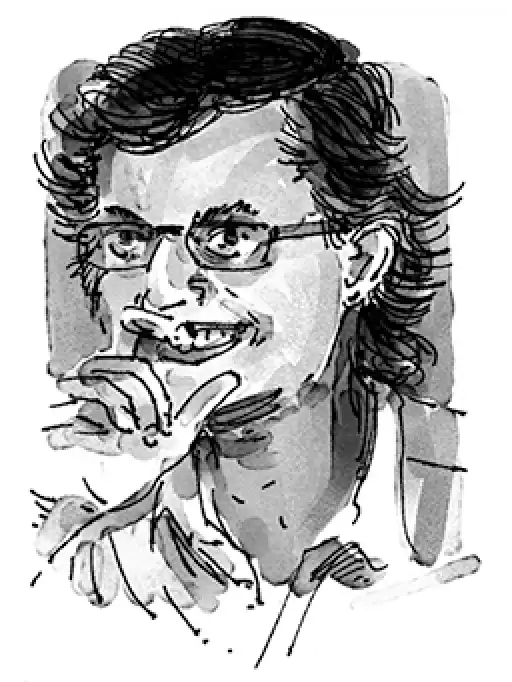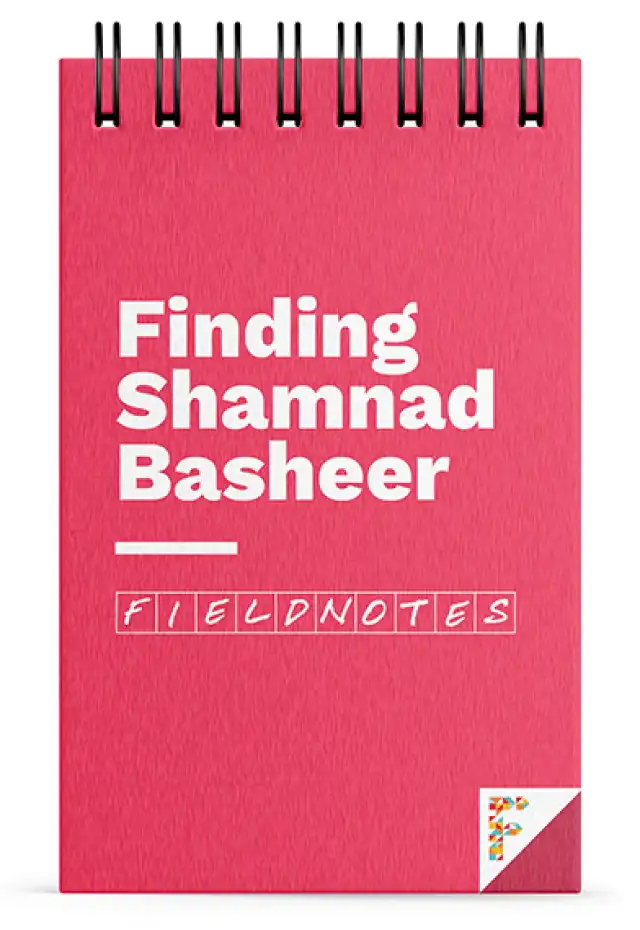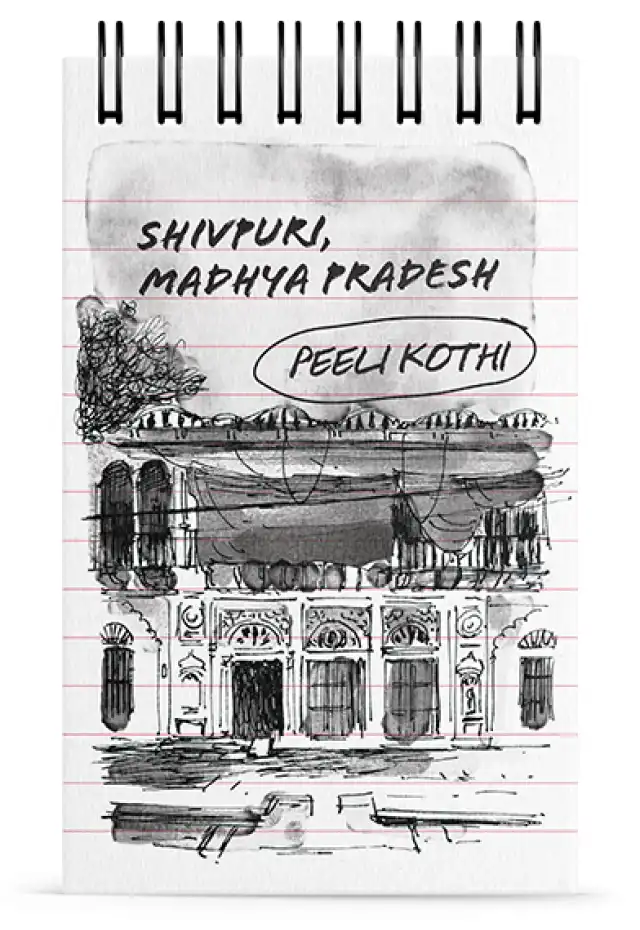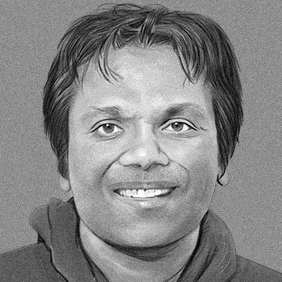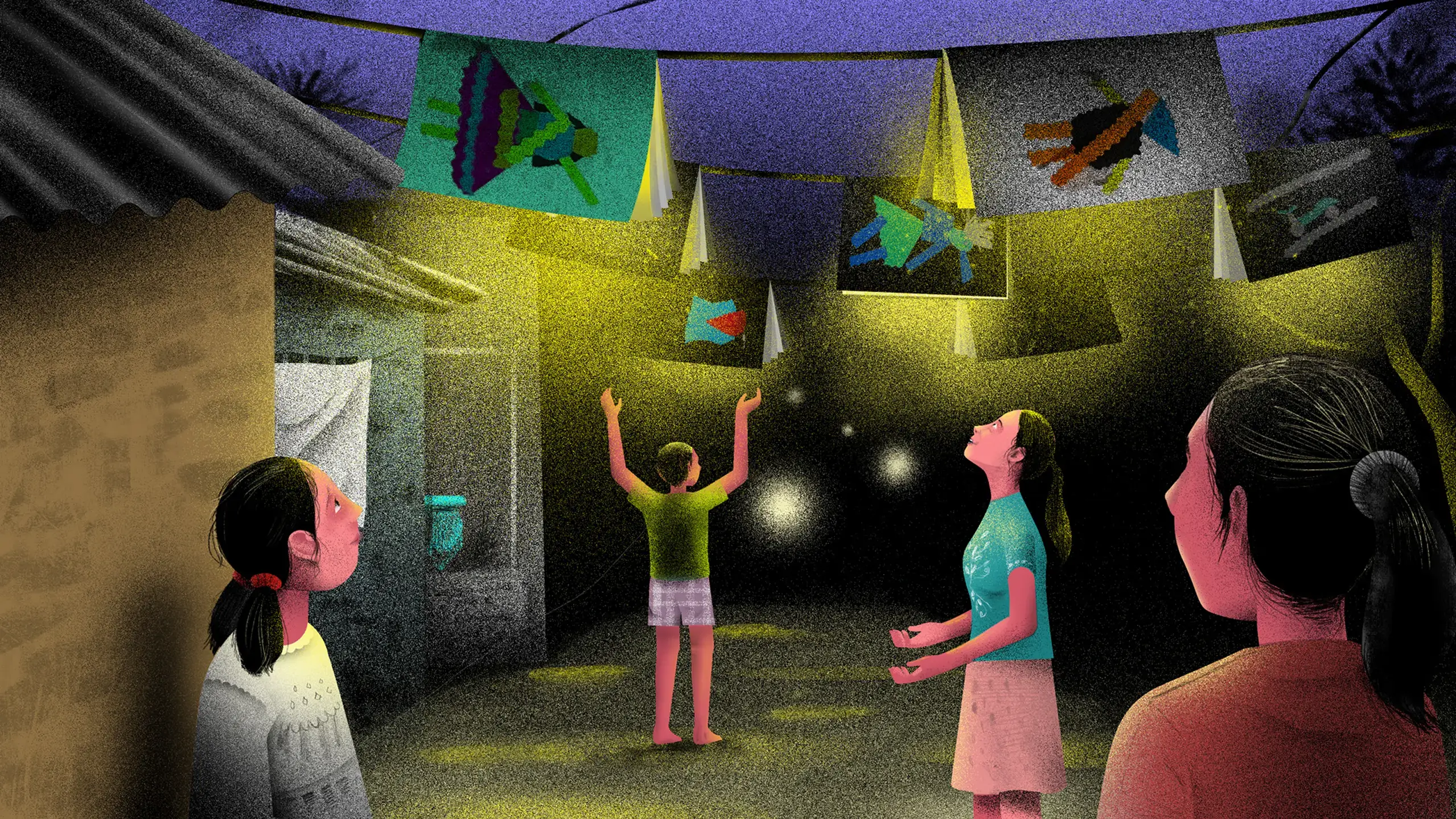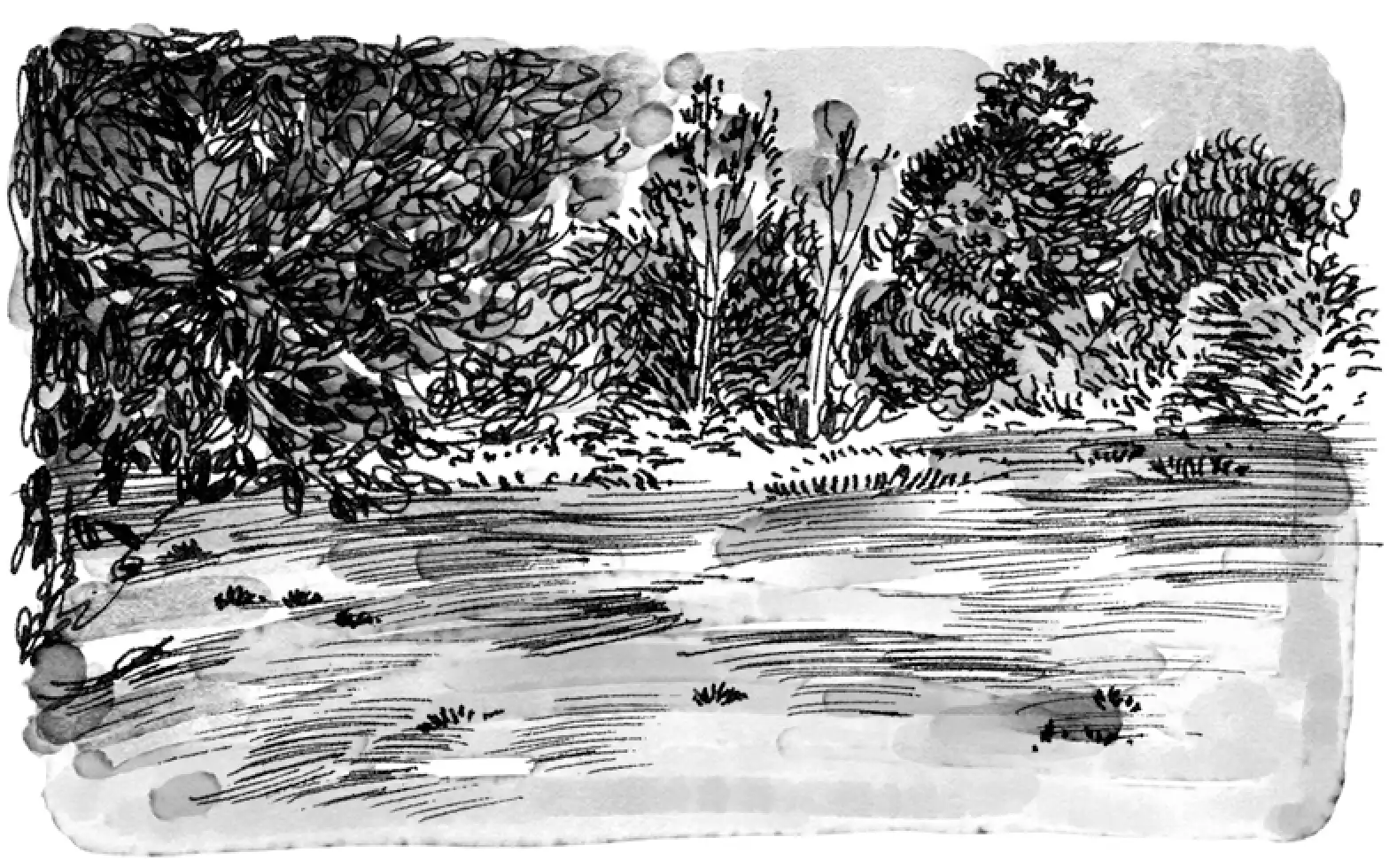
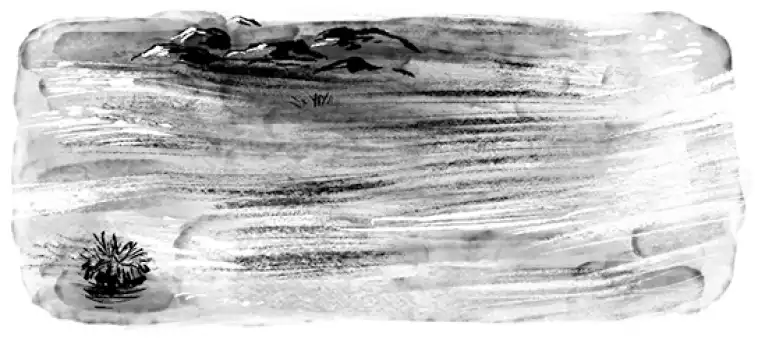
A RIVER’S JOURNEY
Born in 1976 in Kollam, Kerala, Shamnad’s early years in boarding school were a crucible, shaping his understanding of accessibility and equality.
The loss of his mother at a young age was a profound influence, a pain that seemed to fuel his drive. Shamnad, the lanky man with a commanding presence riding his Bullet motorcycle, was more than just an IP crusader; he was a legend in his own right
His path to law was a quest to amplify the muted voices of the underprivileged. “In those classrooms, the silence of the marginalized was deafening,” he once told a friend. Shamnad wasn’t just studying law; he was reimagining it as a tool for societal transformation.
His initiatives, SpicyIP and IDIA, were just the visible peaks of an immense iceberg of change.
Raju Ram, an IDIA scholar, shared, “His idea of diversity and inclusion sparked a revolution within our law college. We started advocating for the overlooked – the housekeeping staff and the security guards. Shamnad’s vision was our guiding light.”
Shamnad’s life, like a river, had its moments of serene flow and sudden, powerful cascades. His passion and resilience were a force of nature, touching lives and reshaping destinies. “He was a monk at heart,” Arnab Roy, Director of IDIA, reflected. “His work wasn’t just about helping; it was about equal access for all.”
In Kolkata, Arnab rides Shamnad’s motorcycle, a symbol of their shared journey; his devotion is inked permanently on his skin as a tattoo. Shamnad’s legacy lives on in the corridors of NUJS, from his unique office space in Room 225 to the lasting impact he made on the lives of the housekeeping staff, advocating for their rights and well-being.
THE SOCIAL ENGINEER
The term “social engineer” was popularized by Dr. N.R. Madhav Menon, the founder of the National Law School of India University (NLSIU), to describe a lawyer who uses legal skills to solve societal problems. Shamnad Basheer was the epitome of this concept. He was not just a lawyer or an academic but a social engineer who used the law to reshape society.
Raju Ram, an IDIA scholar, credits Shamnad for inspiring him to start legal aid services. “Mera shuru se thoda bohot tha ki samaj seva karna
hai…lekin jo chingari mili, woh Shamnad se mili thi (I always had a bit of an inclination towards social service… but the spark I got, that came from Shamnad),” Ram notes.
Shamnad’s battles were not just ideological but legal, too. He was instrumental in challenging and changing a rule that barred the visually impaired from the judiciary in Andhra Pradesh.
“How can a judge be blind was the basic question, and the basic argument was that Lady Justice holding the scales is blind! The Andhra government amended its rules to allow visually impaired blind students to become a judge. I wouldn’t have pursued that litigation the way Shamnad pursued it,” Shishira Rudrappa, Managing trustee, IDIA, said.
His legacy lives on through those he inspired. Nazrul Islam Molla battles child trafficking in West Bengal, and Sheik Ziarul Haque, a visually impaired scholar, fights against child marriage in the Sunderbans. Both are IDIA Scholars.
“Shamnad Sir gave us the law as a tool,” Sheik Ziarul Haque said. “He envisioned a future where the judiciary mirrors the diversity of life itself.”
Shamnad’s approach to life and relationships was unconventional.
Far from the West Bengal National University of Juridical Sciences (NUJS), I traveled to Shivpuri, a small town near Gwaliar in Madhya Pradesh. In Shivpuri, Abhay and his team combine a lawyer’s understanding and a social engineer’s heart to fight to preserve a crocodile sanctuary against the inhuman practice of manual scavenging. Their efforts extend to empowering the marginalized Sahariya tribe, advocating for their fundamental rights and dignity.
In the heart of Peeli Kothi, Abhay’s ancestral home in Shivpuri, time stands still, bridging the gap between an old, casteist world and the realization of Shamnad’s vision. Here, Abhay Jain and his team tackle hyper-local issues enthusiastically, echoing Shamnad’s purposeful crusade. In Zenith, Raju Ram, a Dalit youth from Rajasthan, embodies Shamnad’s inspiring words, ‘Don’t let the fire in your belly die,’ as he confronts deep-rooted caste prejudices with unwavering resolve.
THE RIVER’S LEGACY
Shamnad’s untimely death in 2019 at the age of 43 shocked and saddened the legal community in India and beyond. “He passed away at 43, but he has probably done more than many of us can do in multiple lifetimes,” says his younger brother Nihas.
Despite his father’s background in law, Shamnad became a landmark figure in their family for pursuing the profession. “As far as I am concerned, he is not just my son. He’s a mentor and an advisor to me. His character was like that,” says Basheer MM, Shamnad’s father.
Despite his father’s background in law, Shamnad became a landmark figure in their family for pursuing the profession. “As far as I am concerned, he is not just my son. He’s a mentor and an advisor to me. His character was like that,” says Basheer MM, Shamnad’s father
I felt this queer sense of search and deep pain that motivated Shamnad. Losing his mother when Shamnad was a young boy trying to explain the pain was among the suffering he endured.
As I shared his story at the Agami Summit in Panchgani, I realized that this was not just a narrative to be recounted but a journey to be lived. And so, we journey on, finding more of Shamnad in every story, every reflection, making us all co-travelers in his remarkable legacy.
The absence of a monument at his resting place in Kulathupuzha spoke volumes of his unassuming nature. Yet, his legacy was monumental, etched in the hearts and minds of those who carried forward his vision.
“It’s not a story I can tell. So let the story tell itself.”
This story has been and will be a journey. The purpose is to keep journeying. So be it if that means finding more questions and reflections than answers. It’s like traveling to a place you can only describe in person. And that’s why I am here with you. (We told this story first to an audience at the Agami Summit in Panchgani near Pune).
As we discover more of Shamnad, the narrative will get enriched with us as co-travelers.
RAJU RAM
An IDIA scholar, Raju Ram was inspired by Shamnad’s idea of social justice. Ram is now working to increase the presence of Dalits and other marginalised communities in law
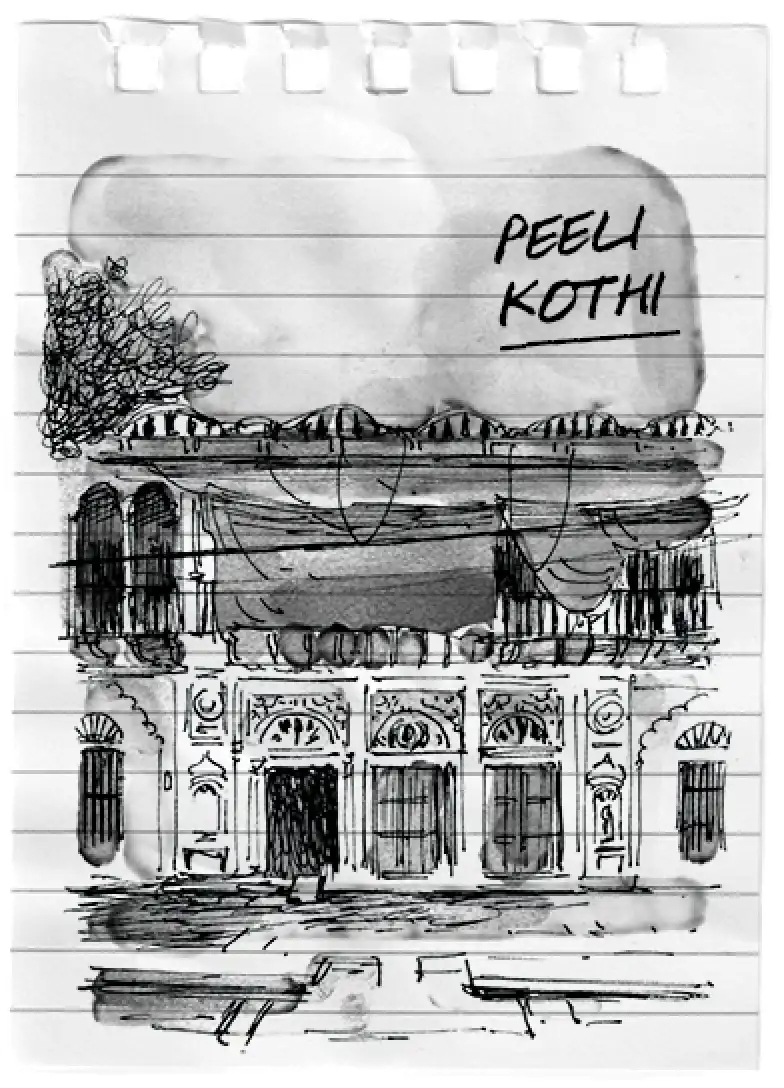
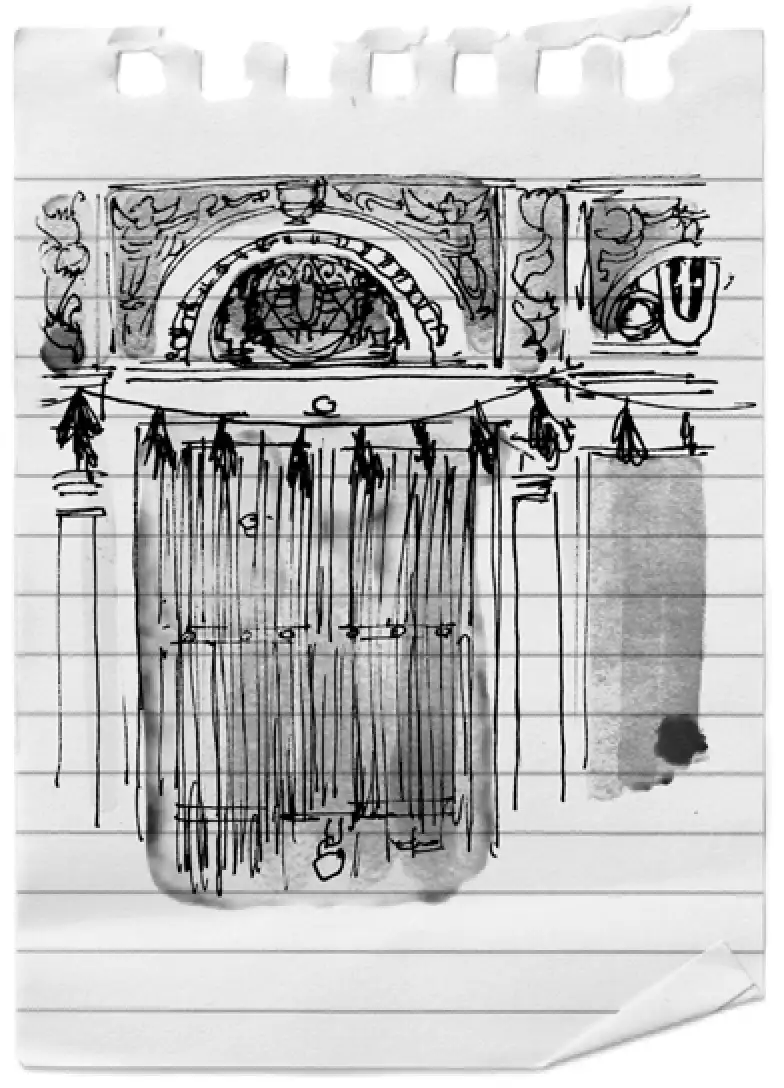
Peeli Kothi is almost like a time warp across the old, casteist world and Shamnad’s idea in execution. Abhay Jain, Swapnil Shukla, and his team of volunteers run a sandbox where hyper-local problems are handpicked and matched with a deep sense of purposeful crusade
Whenever I met Shamnad Sir, I felt a vibe from him. What a man! How much he has done for us!
Even when we didn’t know much about him, there was a feeling that he was like our guardian. Whenever he met us, he told us, “the fire which is there in your belly, you should always keep it alive.”
I had always wanted to do some social work, but the fire and the spark that I needed to do my social engineering as a lawyer — that spark I got from Shamnad Sir. I used to follow him a lot and read his papers, and I realised how important his work was. For instance, in these elitist institutions, you won’t get to see many SC-ST people — even if you come across a few, they will be from a comparatively privileged background, which you can spot from their lifestyle. But when a law school takes people who have faced a Dalit’s problems first-hand, they will have completely different perspectives. After all, money also plays a role in how society treats you. Elite people have no idea what has happened with the Dalits, adivasis, and tribals… People are not aware of their challenges. We started realising why Shamnad Sir’s idea of diversity mattered so much!
At Zenith, Raju Ram, a dalit youngster from Mandore in Rajasthan, feels Shamnad’s one-liner like a heart beat. “Don’t let the fire in your belly die.”

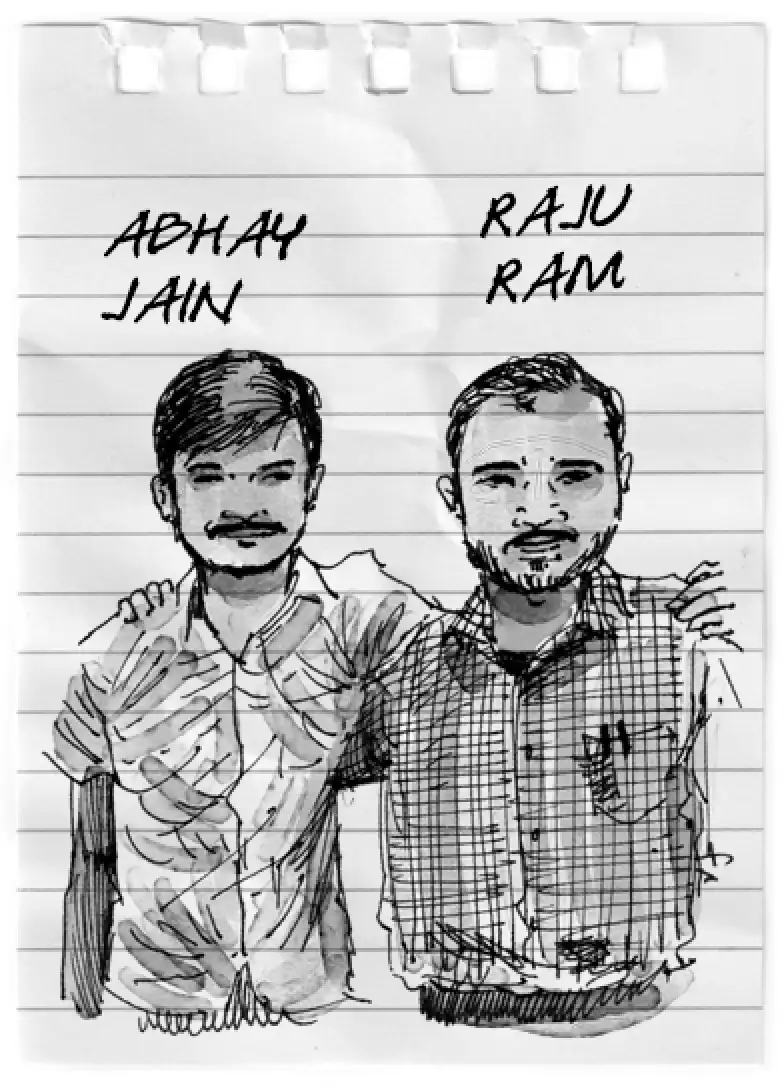
His idea of diversity and inclusion gave us the necessary spark to create a separate cell called Legal Aid Services within IDIA. Under this, we started recreational activities for housekeeping staff, security guards, gardeners, and other support staff within our law college. There we came to know about the challenges they were facing — the security staff were not paid well, the housekeeping staff were not treated properly, the gardeners were not treated well, some of the cleaning staff were sexually abused by engineers and supervisors — all this exploitation was going on.
We raised many complaints for them, from minimum wages to sexual harassment. And once we raised complaints, those matters were heard, and action was taken. So we also started organising celebration events with these staff— each session, we used to organise documentaries and movies on menstruation taboos, social issues, caste issues, and tribal discrimination. We used to show these in local languages. So they started trusting us and used to approach us for help.
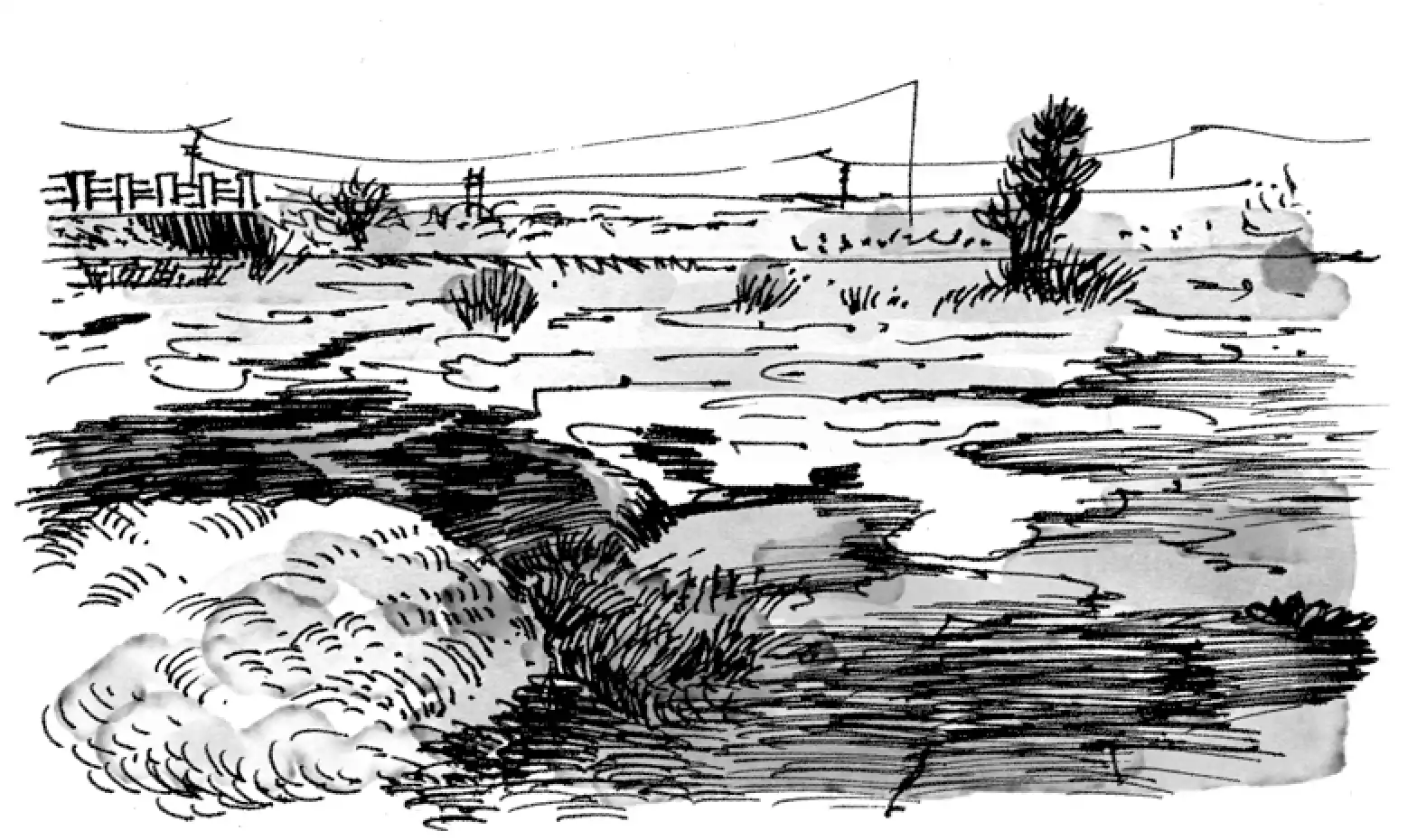
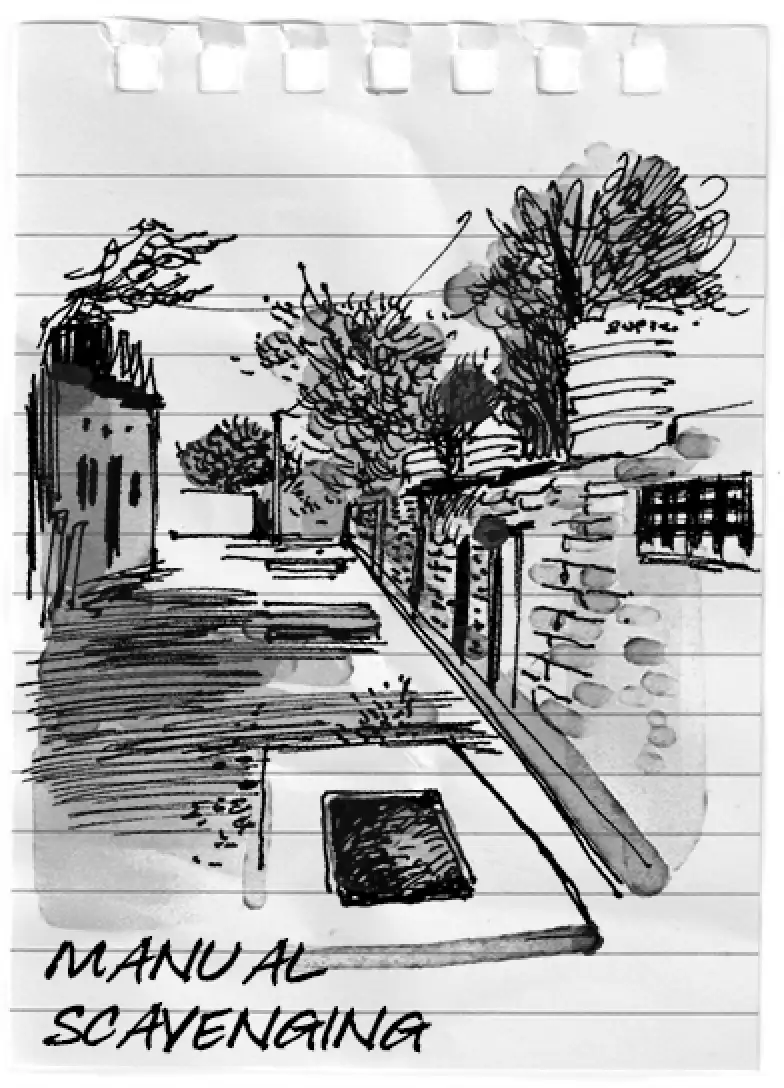
Ye tatti hai! Abhay calls spade a spade when lobbying to fight manual scavenging in Shivpuri. The team once handpicked human excreta and threatened to empty the buckets in front of local municipal building
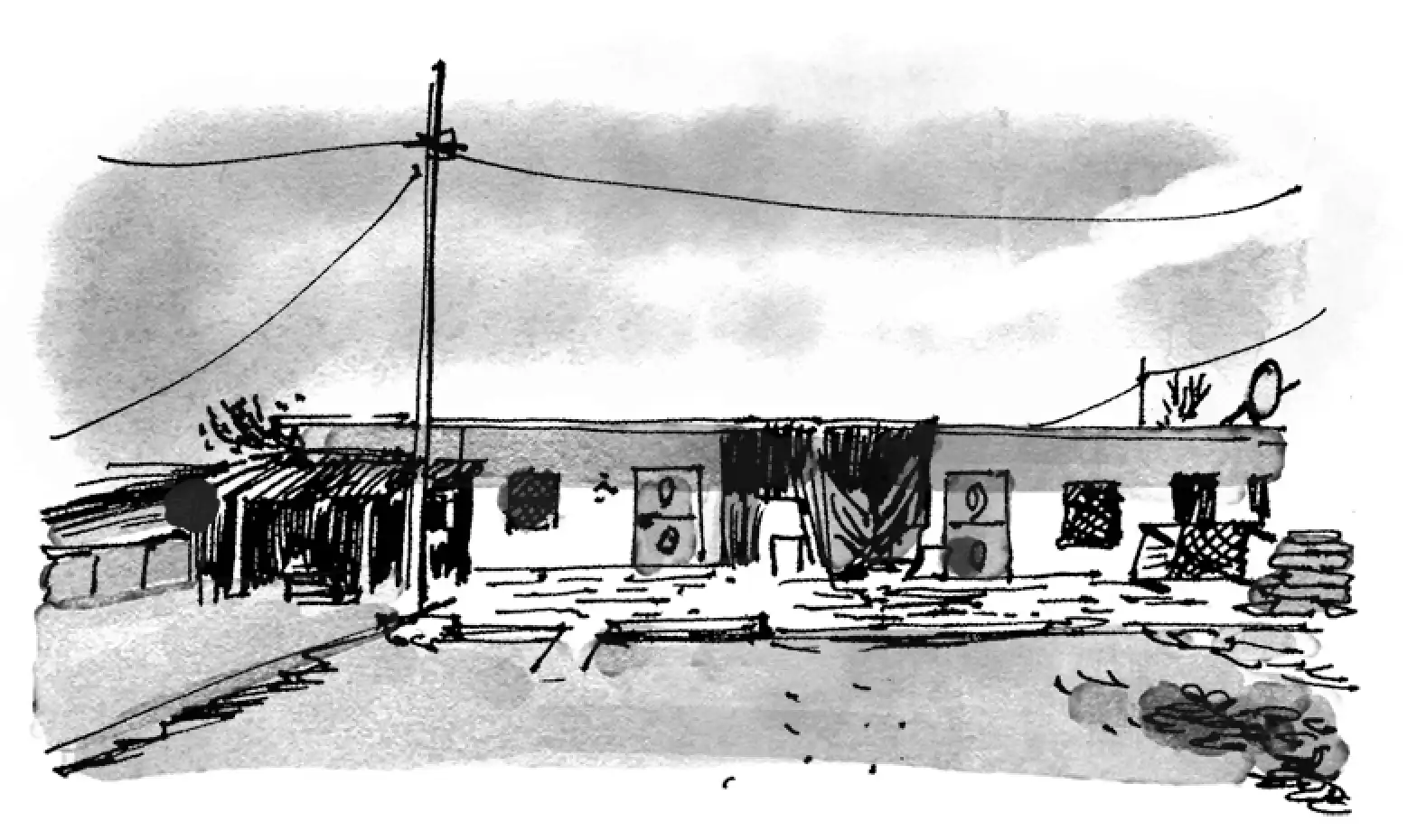
In my childhood, when I used to go to school, Dalits like us used to be given food and water separately — so discrimination like this has happened to us. My father was a construction worker. So during lunch, we used to join him and have lunch together. He was working with upper-caste people who did not come near us; they used to behave differently. They would throw food from a distance if they had to give roti. Water also poured out from a distance. So because of all the discrimination we faced, I always wanted to do something for Dalit human rights.
The same thing I see with tribals — they need to be engaged differently. I understand this because I have faced these problems.
There is a girl from the Valmiki samaj here. Her name is Archi. Her father works as a sweeper here. We are training her for the CLAT [Common Law Admission Test].
So what I feel is that marginalised communities need to have their representation. Because there are just too many challenges for them. For example, English is a big barrier for them not being able to socialise with elite people. And their family background is different. So when they go to elite institutions such as law schools, they feel extremely shy. There is a fear, a trauma — because we have been suppressed from the beginning, so we fear what if we get similar treatment here.
In Rajasthan, they still fight with us when we keep a moustache, ride horses, or enter temples. When we see incidents like these, we realise how important Shamnad’s vision of IDIA is in ensuring diversity and inclusion.
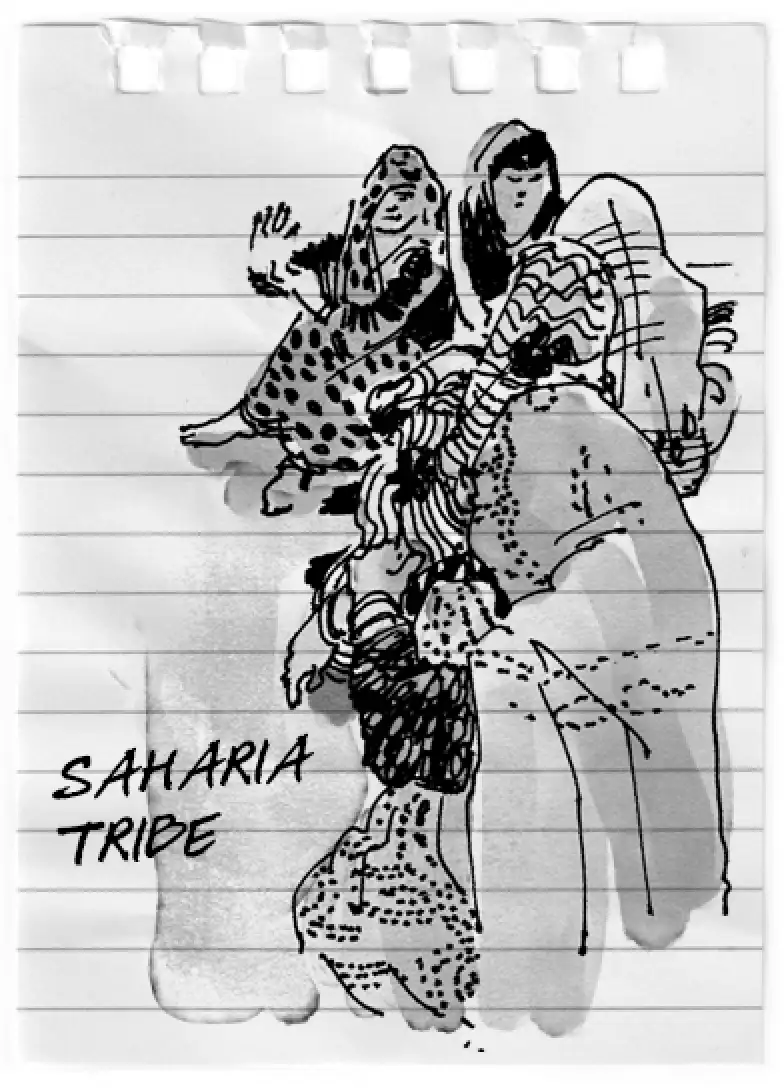
In one of the projects to help migrants from the Sahariya tribe, Abhay and his colleagues work tirelessly to get them basic rights including education, lighting and security. They are being coached not to sit on the ground and seat visitors on a pedestal.
So Shamnad is the spark and the inspiration behind my human rights and social work. What I am doing is not for myself. I am doing it for the community.
“In Rajasthan, they still fight with us when we keep our moustaches, ride horses, or enter temples. When we see incidents like these, we realise how important Shamnad’s vision of IDIA is in ensuring diversity and inclusion,” says Raju Ram
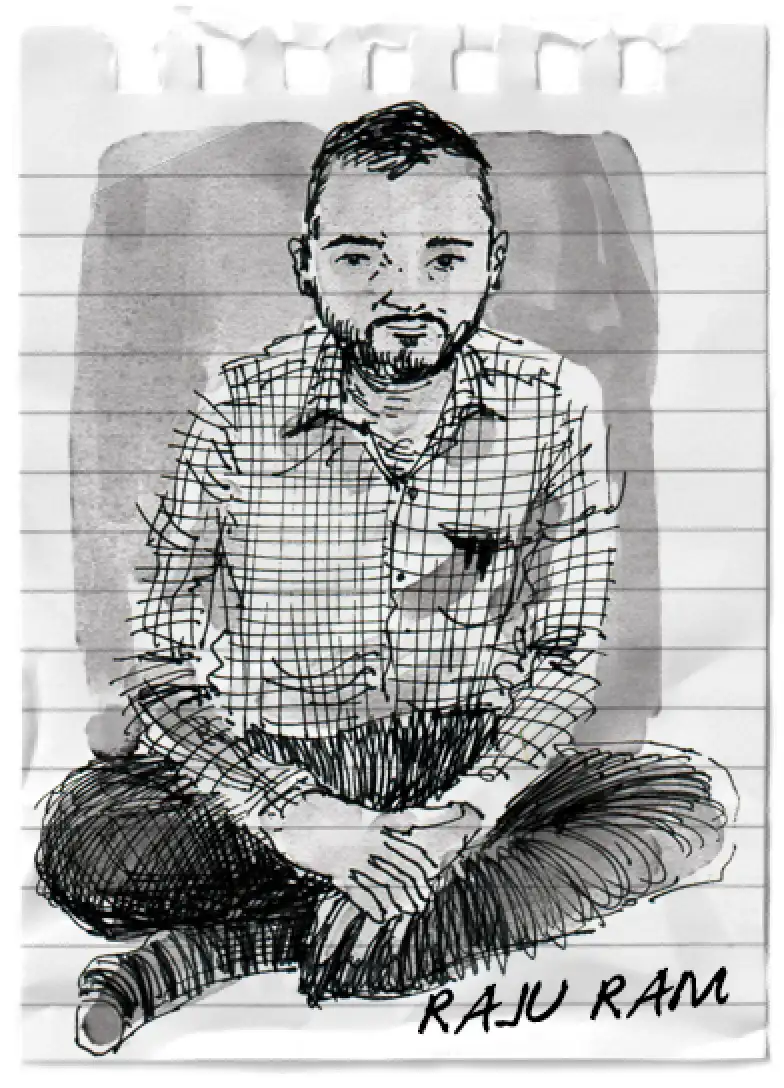
PRAVIN ANAND
The Managing Partner and Head of Litigation at Anand and Anand, Pravin Anand hired Shamnad after law school
Shamnad was full of compassion and love! He would walk down the stairs, find a chowkidar in some distress, and start talking to find out what was happening in their life and what they needed.
He would try to help everyone, whether chowkidars, drivers, or office staff. All of them were good friends of his. He would sympathise with everyone. Ye sab log usko Shamnad bhaiya, Shamnad bhaiya kehte the, because sabko pyar karte they (All these people used to call him Shamnad Bhaiya because he used to love them all).
He was also very passionate and curious. Intelligence is one thing, but his curiosity for knowledge was remarkable. I could get him interested in a subject in a split second. All I had to do was to get him involved with “Shamnad, have you read about the parallel universe? About the black holes? What is the unique property of black holes?” I’m from a science background. So I would tempt him with science. And he had probably not studied science too much in his life, but his interest in that domain was so great that we would have discussions for hours and hours.
I remember sometimes tearing up what he’d bring and asking him to search further until he found the right thing. But, Shamnad would not give up. He learned that the level he had to work at Anand and Anand was much higher, and he picked up pretty well.
And then the greatest quality he had, apart from a curious mind and huge intelligence, was that he was willing to share his knowledge. I believe you cannot be a teacher unless you’re willing to share your knowledge. Shamnad was great at sharing.
Another thing I noticed is that he used to lay out his books and open 12 books simultaneously. It’s not that he would sit down with one book and finish it; instead, he would take a bite from here, take a bite from there, and this way, he had 10-12 books opened simultaneously. My wife often started bickering with it: “Shamnad, put your books in order, don’t keep your room messy!”
So this was his nature: Curious, passionate, extremely sharing of knowledge, and compassionate.
We did disagree on many occasions, but wo kabhi kabhi disagree karta tha just to see ki kahan tak jaati hai ye baat (at times, he would disagree with me just to take discussions forward because he was hungry for knowledge).
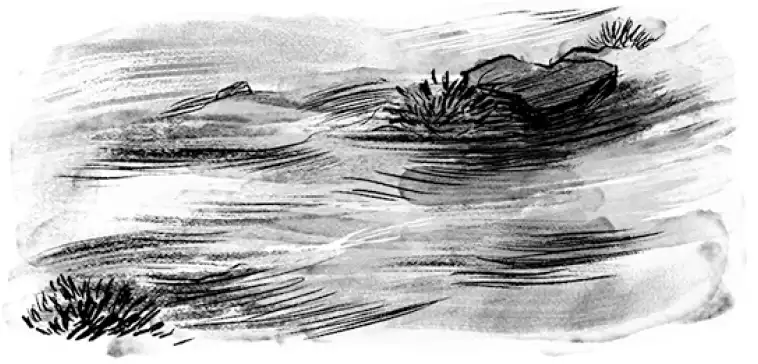
See, at heart, I’m a teacher. I always have this preference for students whose parents were teachers. I will always love them. I had that tremendous bias for Shamnad because Shamnad ko padhaane ka shauk tha, share karne ka shauk tha, usse bahut logo ko inspire kara usne (Shamnad loved teaching others and sharing knowledge with others. He inspired many this way).
Aur usne mere se jyada logo ke bare me socha, ki gareeb students ko kaise promote kiya jaye (He thought more about the poor than I did — he would keep thinking about how to help poor students). His efforts to advance learning in the legal sphere amongst the underprivileged were outstanding.
Very few bright lawyers and law students — very few among the achievers and successful people in the legal world — like to share knowledge! Because everybody wants to keep trade secrets close to their chest. They don’t want to share. In that sense, Shamnad was very different.
Log bahot inspire feel karte they usse, uske students se aap jakar milo, wo log bahot pyar karte they usse (People used to feel inspired by him. If you go and meet his students, you will realise how much they loved him).
People don’t realise that IP is everyone’s right. Shamnad did a lot of work in that direction to get people involved and reach out to the poor.
Dekho aisa hai ki maine dekha hai, jab koi spiritual insaan jeeta hai apne life ko, to jab wo mar bhi jata hai, to uska effect unlogo par bhi hota hai jo unse mile tak nahi the (Look, whenever a spiritual person lives around us, he lives in such a way that even after they die, their impact reaches those who never met him). So while a group of people who interact closely with you may get influenced by you, a sign of the greater good is that people remember you beyond their interactions. For example, if someone comes to me after 10 years and says, “Sir, you don’t know me, but I know you because you created the IP board game, and at that time, I had played the game and went on to become a lawyer because of that.” So this is when you realise that this has gone a little beyond the people interacting with you. To Shamnad mein wo power tha (so Shamnad had that kind of power).
Many people who may not have met or known him will get inspired by him, despite the distance of time and space! And I think that is the person who is truly inspiring in this world.
AMEET DATTA
Shamnad’s close friend and colleague at Anand and Anand, who now works as a partner at Saikrishna & Associates
I sent a letter to Mr [Pravin] Anand, enquiring about the possibility of working with him at Anand and Anand. It turned out his wife’s native place was one hour away from mine: Maihar [located in Satna district of Madhya Pradesh state, Maihar is known for its Maa Sharda Devi Temple]. So I think he called me more out of novelty: Ki yaar ye MP se kaun hai? Pehla bar koi udhar se aaya hai (Pravin was curious that someone from this place in Madhya Pradesh had come)!
As I met him, I was made to sit around for some time, and then I lost it and told him off: “See, this is not fair. You tell me to go out, I will. But don’t make me sit here for eight hours.”
Come now, Mr Anand said. I turned up and was sent to the conference room, where I saw this young, fit guy with a nice crop of hair looked after in the Keralite Malayali fashion with heavy doses of coconut oil — the Indian equivalent of Brylcreem— sitting in the corner.
As I sat down with my CV, I realised that for someone coming from Jabalpur, there was practically nothing to show on the CV. My CV had double spacing, and the damn A4 page wasn’t filling! And Shamnad’s CV was like Page 1, Page 2, Page 3 and A, B, C, D! I first said to him, “Have you come today only or what?” We didn’t know each other, and he started laughing. He said, “No da (the word da is a casual term among the youth in Bangalore), don’t worry. You’ll be fine, man.” (Shamnad was interviewing the same day with Anand and Anand. His CV was full of accolades and achievements, and hence it had pages after pages of listed academic credentials.).
I was sure he was going to join. Shamnad was accomplished — his thought process jumped out at you. This man was somebody who seemed to have mastered his craft. Generally, the problem with lawyers is that they may be good at the law, but they’re not good at first principles — they don’t learn the first principles of law. So when breaking down things, you’re only that good if you don’t know the first principles. But Shamnad’s ability on first principles was like, he had this ability to look at a proposition — any area of law — and then just step back, and then almost take a helicopter shot of the policy level view! Lawyers don’t have that. Lawyers only look at it from the grunge of that one case, at that eye level, but Shamnad had that unique ability. He had already carved an academic name for himself among young people at that time.
One day, I remember barging into Mr Anand’s office in a rage. A gentleman was also sitting there; I assumed he was the morning shift’s stenographer. And in front of him, I shouted, “Mr Anand, I’m not doing this anymore. I have not come here to do a paralegal job. I have come here to do a lawyer’s job. And I don’t think this is right. I’m happy to pitch in, but it’s not right.” Mr Anand was very upset and said, “Well, if you think this work is beneath you, then you can leave right now.” Suddenly, I realised I was screwed — what do I do now? My ego is big, but it was like naukri ja rahi hai yaar (after all, I was losing my job)!
As I returned to my small cubicle, stood frozen for some time then reluctantly picked up my bag, Shamnad was there. He asked me, “what happened, buddy?” I said Anand wanted me to leave. Shamnad asked me just to wait, and he went to Mr Anand’s room and said, “I think what you are doing to him is unfair. And if he leaves, I leave!”
What a person he was!
The law firm’s business didn’t challenge him at all. Because like any other business, the law firm has to standardise and build economies of scale to be profitable. And Shamnad was someone who actually quit the business and went back to academics!
There was a bit of contrarian in Shamnad. He was fond of debate — I always felt he did a very good job as a litigation lawyer. But at the same time, he could look at such complex stuff and talk about it in simple language as if it’s bachcho wala kaam (child’s play). When people around him had not even reached that level of complexity to understand the legal proposition, he could make others understand those complex things in the simplest words.
I never asked him why he switched to academics later in his career, but he just said, “I’m done yaar! I want to go and do my master’s. And then we’ll take it from there.”
He was always interested in the legal profession from a different perspective. He wanted to do different kinds of matters. Like out of the blue, he called me one day, some two or three years before he passed away, and said, “There’s a guy who imports sex toys. Adult toys. There is an obscenity case here, and we can test the bounds of obscenity.” So he was thinking on that part, you see.
And again, this guy was like a Sufi! I used to ask him what if tomorrow you had to vacate your house in Bangalore? What will you do to the AC, the television, and other things? And he would say, “I will dump it all and distribute it to people.” So for him, the only material possessions were his two bags! Impossibly heavy bags. I mean, it was like that bag had Shamnad in it!
And he used to have a Sanjay Dutt hairstyle, with long hair, almost like a mad scientist, and as he walked around, he had a whole band of fanatically devoted kids who followed him.
You know, my birthday was on the 3rd of August. Shamnad passed away on the 4th or 5th. So my last call was on the 3rd; he called to wish me and scream at me. He said, “you’ve not paid money to IDIA! What is it? Only two kids? You guys are rich enough to support six kids.”
After that, he sent me a text: I love you, brother. I said, Shamnad, I love you!
When he came here, he was not well. We did every test known to mankind, and everything appeared okay. There was no problem. So the doctor met him and said something different. That doctor turned out to be a psychiatrist, and she said, “Mr Basheer, you need to get married!” Any other guy would have gotten annoyed and walked off, but Shamnad Basheer asked her, “can you help?” I told the doctor: he is only joking!
One remarkable thing about him was that when he was with you, he would suspend everything; nobody else was more important than you. And his focus was: How are you? What are you doing? What’s your life like?z
We had a house help, and he once had long conversations with her: How much are you making? Are they looking after you? Don’t worry, you tell me secretly. Do they give you medical or insurance assistance? Can you send home money regularly, or do they hold it for you and give it only periodically? When do you go home? Do they pay for travel?
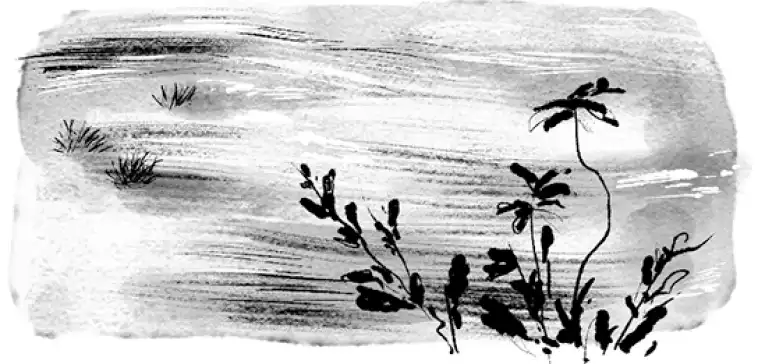
It was not that he had his higher moral plane. He was human. He had his arrogance; once, he had a violent argument on copyright law. For him, it was not like, ‘you are my friend so I will spare you; I don’t want to fight this guy.’ He said, “it’s a legal case; you must come clean. Convince me.” That’s why it was also a genuine pleasure to butt heads with him.
Regarding his personal life, I will add one more observation: When you are young, the paths you take — career, family, car — there is a partner who is involved, right? With Shamnad, he was never oriented to it.
He was on a different path.
ARNAB ROY
Roy, one of the directors of IDIA, has Shamnad’s face tattooed on his left arm. Roy also drives the Enfield Thunderbird motorcycle gifted by Shamnad
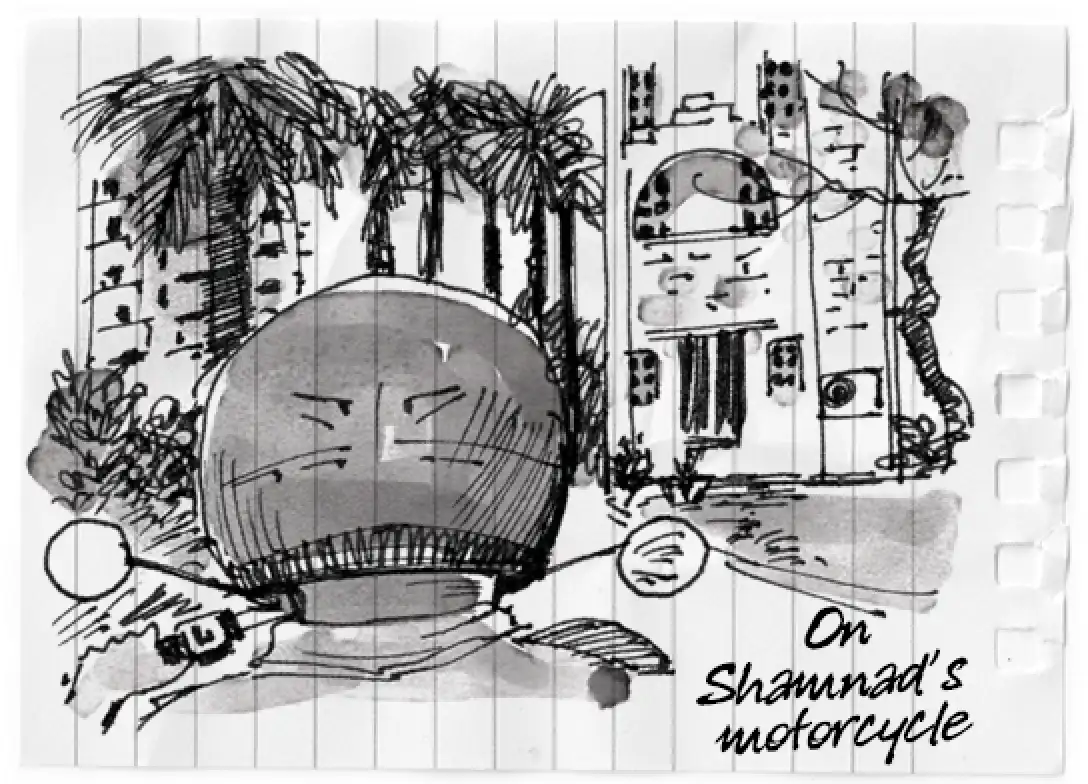
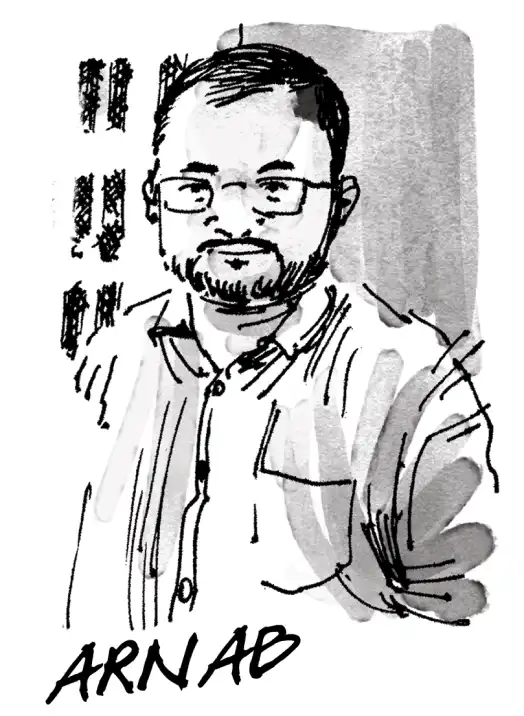
Arnab Roy in Kolkata rides Shamnad’s motorcycle like body and soul. With Shamnad’s face tattooed on his hand, Arnab is like a member of the human library.

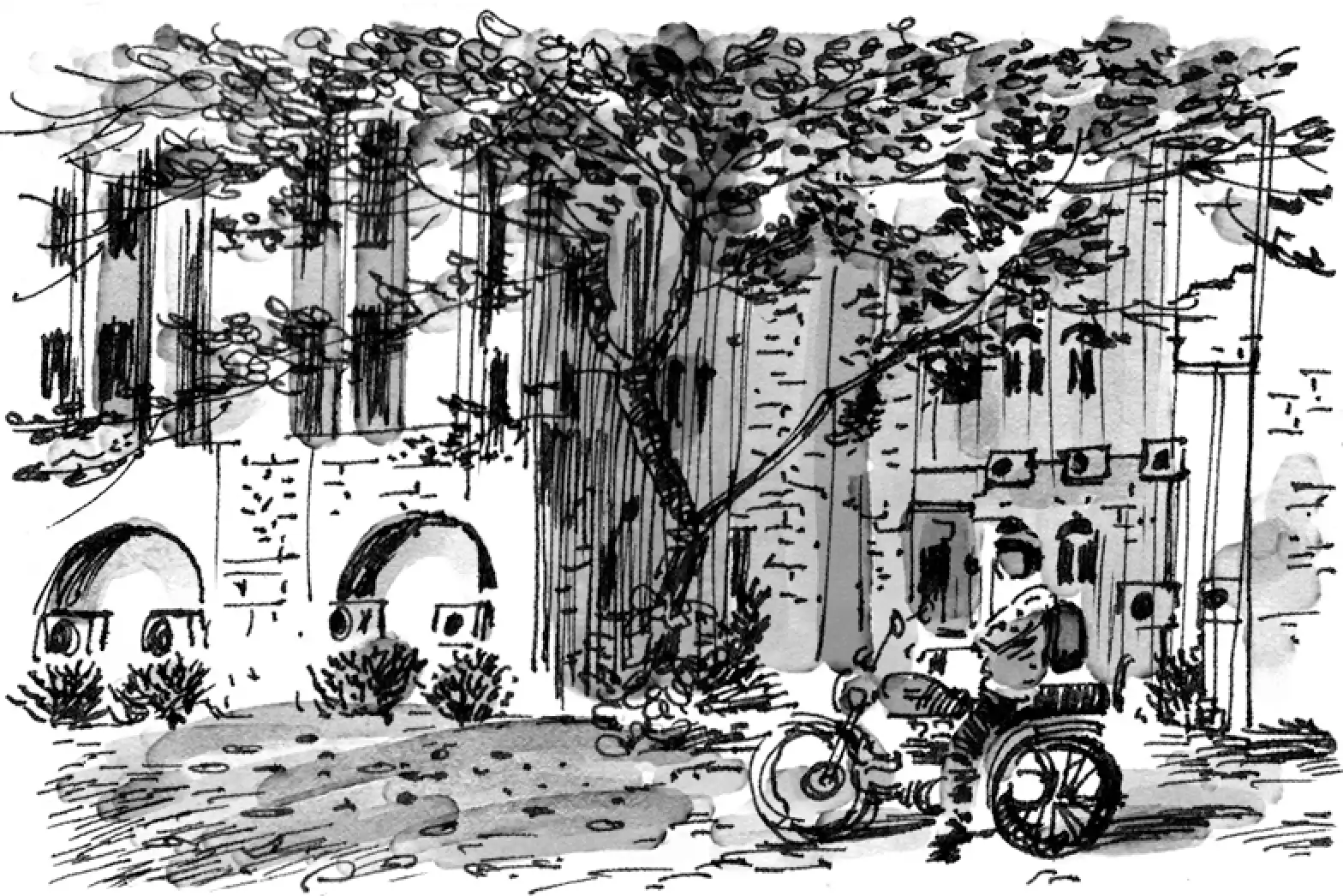
It’s difficult to talk about something you know a lot and still don’t know a lot. To ye ek aisa topic hai mere liye (this is one such topic for me).
First, log unke bare me na bhi jaane, to bhi chalega (it’s okay even if we don’t talk about him)! Because he wanted it this way. Always.
People who know about him through his initiatives — SpicyIP, IDIA — that is just the tip of the iceberg. If you dive deep into Shamnad Sir’s life, that depth can sink a Titanic! After working with him for 10 years, I realised I didn’t know much about him. He was a man of mystery.
There is a Hanuman temple here (Arnab points to a temple area on the side of the lake). He used to sit there and meditate whenever he used to come. Near that temple, there used to be 20-25 slum huts, and an old couple used to live close by. That couple also used to come to the temple.
That lady used to look after five or six stray dogs and 10-15 cats. And she had a few crows also. They used to come to the temple regularly. They had a snake, also. Because of how they used to care for animals and do all pooja paath, Shamnad Sir was curious about them. When he learned that the old couple had no children and that the old man used to drive a taxi earlier, he tried to help them in so many ways, but they initially refused all help, which further drove Sir’s curiosity. He thought they were not ordinary people and that there was something divine in them. Sir had even kept one room, especially in Kolkata, so they could come and live there, but they refused. It took Sir two or three years to convince them; after that, he helped them so much in many different ways. It was sort of a spiritual connection between them.
Later, he also fought a legal case for them. There’s a lake called Subhash Sarovar here (Arnab points to the other side), and this old couple used to live on the banks of this lake. Now the central and state governments were doing a beautification project, forcing this couple and all people living nearby to relocate elsewhere. At that time, we filed a PIL on their behalf of them and successfully got the stay. So in the PIL, Shibu Roy was respondent no. 1 (the name of the couple was Shibu Roy a.k.a. Shibu da and Geeta Roy), and that’s how we filed a petition and uska rehabilitation mil gaya tha humein fir (we had got the rehabilitation order for him). I will take you to that place as well. Wo aas paas me hi hai sare (that place is nearby only) — just on the opposite side of the lake.
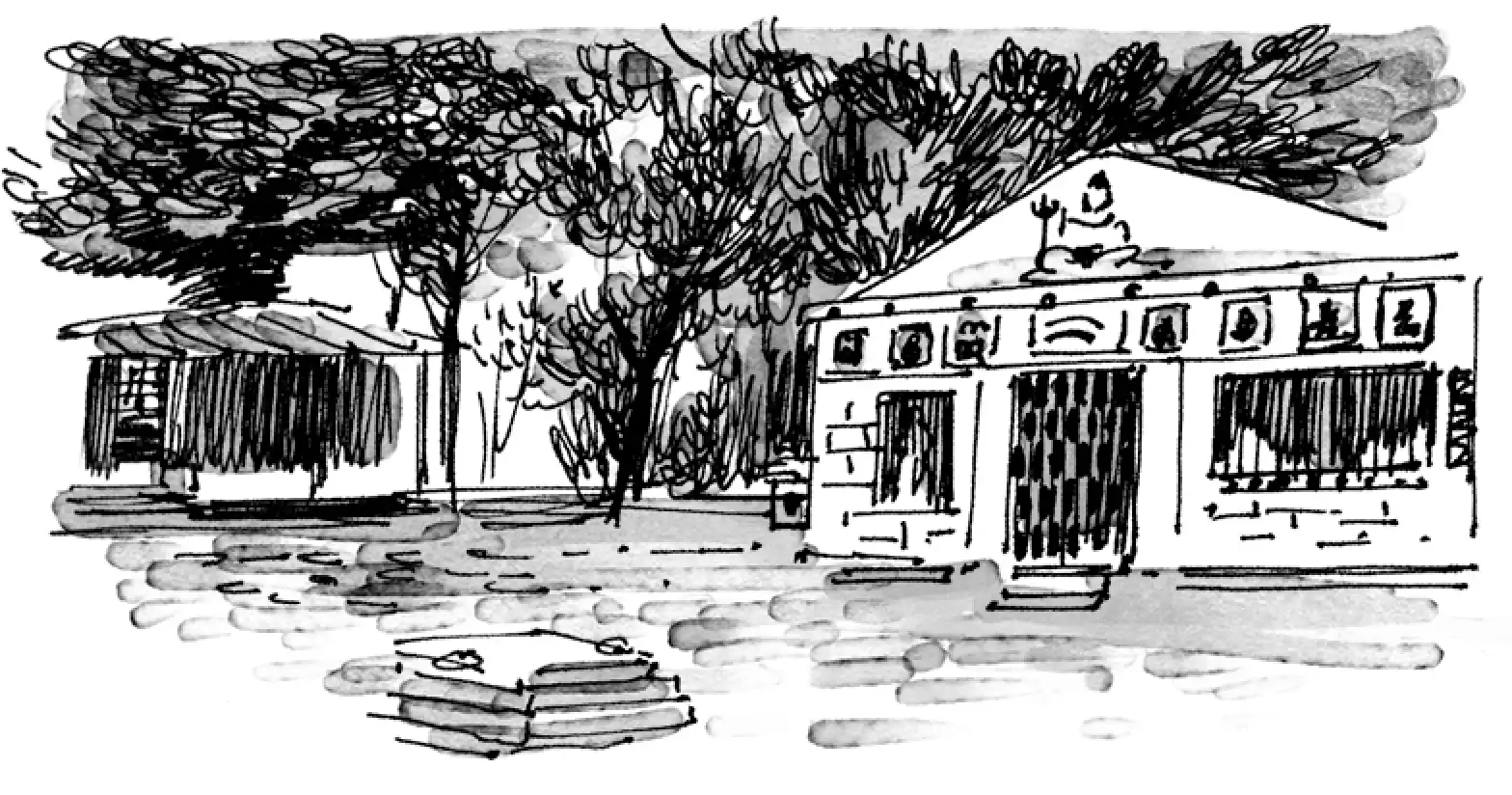
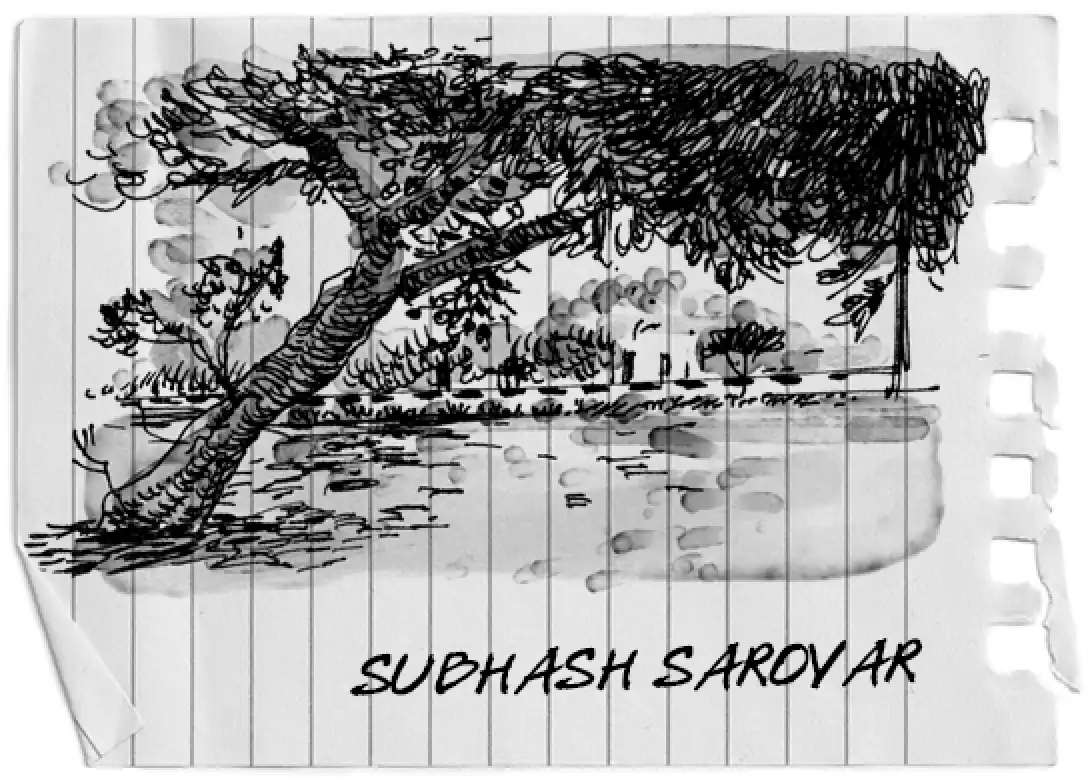
Don’t let the soulful picture fool you. This is where an ageing couple found peace and fulfilment in Shamnad’s crusade. When the government’s decision for beautifying the lake and its surroundings displaced many, Shamnad fought to get them rehabilitated.
I remember when Sir passed away, I was driving back after attending his funeral, and I was discussing with Shishira Rudrappa [Shishira is the managing trustee of IDIA now] that there was an old couple who Sir used to take care of — Shibu da and Geeta — and that I didn’t know how I would inform them. As I was just chatting with him on this issue, just then, and exactly then, I got a call where I was informed that Shibu da is no more. Same day! And then this old lady [Geeta] — I did not inform her that Shamnad Sir was no more. She used to call me Bhai and used to call Shamnad Sir as chhele (which means “son” in Bengali).
So she used to tell me, “Bhai, chheler shonge kotha bolbo.” (I want to talk to my son). And I used to tell her, “okay, he will call you tonight and talk to you.”
Then I used to imitate Sir’s voice and talk to her! I can imitate very well. I remember this program called NUJS Has Got Talent, and I was the winner of this competition where I imitated the faculty members. Shamnad Sir came to know that I imitated him as well. So he told me, “Arnab, I got to know you imitated me. Now you imitate my signature!”
So this is his signature (Arnab signs like Shamnad, and it looks like a true copy). You see, I can imitate his signature so well.
I will tell you; he was more than a father to me. I have gotten many things from him, which even my father would have been unable to teach me to navigate in that direction. And so, to me, he was a combo of a friend, brother, and father!
I will always cherish the way he used to say, “waqt ko waqt do” and everything will happen automatically!
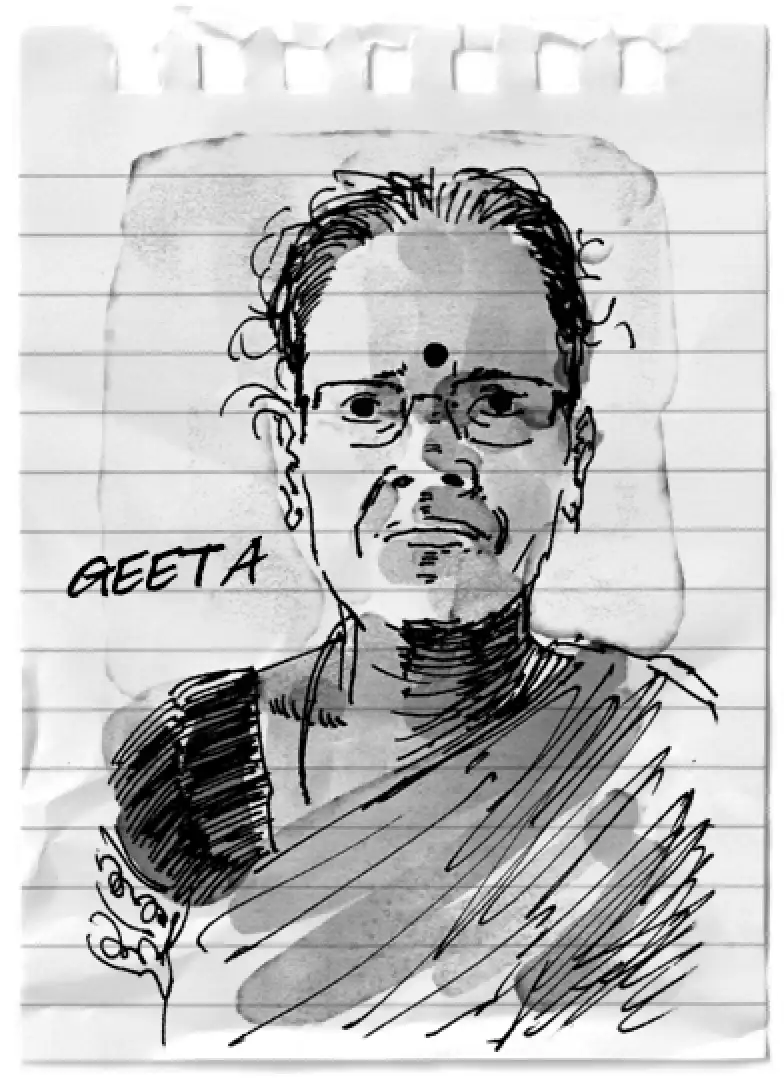
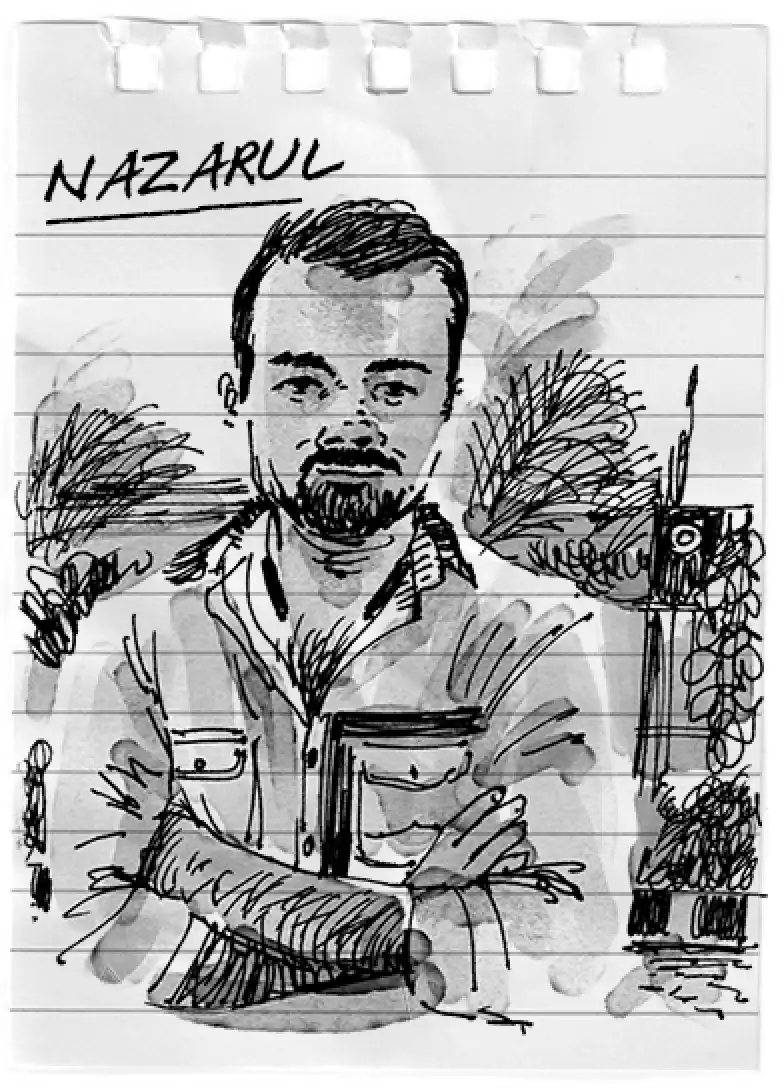
Do you know, initially, I tried to avoid him, and the reason is interesting. In NUJS, I had a crush on a girl, and that girl had a crush on Shamnad Sir. But for him, all his lifestyle (Shamnad used to come on a Royal Enfield Bullet, and a lot of girls were crazy about him) and the attention he got from his fanatic fans in the college — nothing was a calculated move; it was not something he was doing intentionally!
So though he had a lot of ex-girlfriends, he stayed good friends with everyone. It was not that they became enemies. Till today, I have talked to many of his ex-girlfriends. They all respect him.
In our circle, people jokingly say that if you want to understand diversity, you should see Shamnad Sir’s love life!
But do you know why I still keep in touch with them (all his exes)? I intentionally do this because one of the objectives of my life is that the world should not miss him! Wo nahi hain fir bhi unka koi kaam nahi rukna chahiye (just because he is no more, his mission should not stop). That will be disrespectful if I allow this to happen.
So, it’s like he has left India, and I am just not getting his phone calls and emails. I see it this way. And this gives me sukoon (relief).
Otherwise, it was very empty the first few days and the first few months! Even when I was going for my surgery, I texted him. He was not there, but I still texted his number, even after his death. On his memorial, I was there in Bangalore, but main gayab tha, intentionally. Kya bolu?? (I was absent intentionally, what was there to say?)
You know, he was a believer in Hinduism as well as Buddhism, and so he also believed in the concept of punar-janma (life after death). When I stayed with him for one month, we also talked a lot about religion, and I wanted to know his opinion about different religions. Once I asked him, “Sir, you have done so many good things to so many people in this world, then why is this happening to you [Arnab was referring to Shamnad’s physical ailments and deteriorating body]? He said, “Nawaab [when he was in a good mood, Shamnad addressed Arnab as Nawaab, and when he was angry, he used just to say Arnab], maybe in my past life, I have done something wrong, and I was opposite to how you see me today. What you do in this life, you get the results in this life or future life.”
So he was a monk! Deep inside, he was a monk! Wo gerua wala..daadhi wala nahi… (not that saffron-robe-wearing monk with a beard)
People often talk about his works as the cause of helping blind students, but I don’t think ki unhone kuch specially alag karne ka prayas kiya isme, unka jo work pattern hai throughout, wo tha hee sabko access dena (I don’t see it as him doing anything extra in this regard, because his very pattern was to make everything accessible for all)! Whether SpicyIP or IDIA, it was always about giving access to all.
For instance, … IP. Now, IP language is sophisticated; they don’t teach this subject in the first year of law; they teach IP in the third year. IP is tough to understand if you are not aware of corporate law and all these things. So Shamnad Sir had a mission to cut down this barrier of IP for the common person. His structure was to create accessibility for all.
Otherwise, he was not pro-IP, he was anti-IP. It’s like that Matrix movie dialogue ki system ke andar ghus kar system ko thik karna hai (he was trying to correct the system by entering it)!
JUSTICE PRABHA SRIDEVAN (retired)
Justice Sridevan served as a judge of the Madras High Court from 2000 to 2010 and was appointed the Chairperson of the Intellectual Property Appellate Tribunal after her retirement

For Shamnad, social justice was not just on paper; it was very much alive. And not many think about it, but he made that happen. When you are a professor, I don’t know if I sound prejudiced here, but you are less likely to do it because you are not in touch with reality in some sense. Shamnad was a professor, and he still did it! Not once in his life had he lost touch with that space.
There is inequality and injustice all around. And there are a lot of ways you can make the gap narrower. Law is one of the best tools for this purpose, and that is what it is meant to be, whether you are a lawyer or a judge. And Shamnad knew that. His area of expertise is something you would not think of normally — You won’t connect IPR [Intellectual Property Rights] and Human Rights, but he made that marvellous connection!
Suppose there is an income tax expert. You won’t expect that they would look at human rights. I am saying this in general…I am sure there is a bleeding-heart income tax lawyer. But IPR is like that — more about objectivity than emotions. How did Shamnad do it [do IPR and human rights]? I think it came to him naturally, and he was constantly aware of it, and he would not rest until he was constantly making that happen.
And this marvellous brainwave he had of increasing diversity — it’s something that you can not even believe. Every IDIA scholar knows it. I think now that Shamnad is not there, they all know why and how they are there. It’s not a burden for them, and they know that they must include — they must include diversity and embrace diversity.
In a way, Shamnad can be called privileged because he had the best education and everything, and so he felt that this must not be something that is within reach of the few. He made it his mission and inspired many to do it and join the IDIA plan. Whatever was pushing him, I can call it emotion! I don’t know what to call it, but it was infectious. And he could infect others with that.
For him, IP was not just a discipline; it was something more than that. And he felt that if the country had to have a policy, it must have the best persons framing it. I mean, nothing less than the best would do for him.
I remember his voice — the way he would say “ma’am” — that was exuberance! You think somebody who works so much for social justice would not have a smile, but he was not like that. He was joyful. Amid everything that he saw, he could laugh!
If I were troubled by something, I would tell him that, and he would say, “ma’am, I will include this in my prayer!” He would pray. Usually, somebody else comparable to him won’t admit that they prayed because it was not cool. But, for him, it was cool! Because he was that cool.
He was an ideal teacher. I am not using the word professor for him; he was a teacher, like how we use the word ‘Guru’, which means dispeller of darkness. He was that. He knew what his duty was. So it’s a real loss. You don’t get teachers like that, who generously share. Look at his students – they are not their students; they are all “taught” by him.
He saw it as a whole field, not as isolation. His life is to be celebrated. Sadly, he went.
It’s a loss that is incomparable. And I am saying this because losing a friend is hard. Because you can share things with them without inhibitions. And that door is closed.
SHISHIRA RUDRAPPA
Shamnad’s junior from law school, Rudrappa is currently the managing trustee of IDIA
So we were on the same plane, sitting next to each other. And because I knew how Shamnad looked — he had a Frenchie and long hair — I was sure the person sitting next to me was Shamnad Basheer. But his boarding pass read Pravin Anand! I said, ‘My God, how do you call Pravin Anand Shamnad Basheer!’ So I kept quiet! I didn’t want to say anything.
So he started talking to me, and when I asked him what he did do, he replied, “I’m a law professor.” That is where I said, “Shamnad? You know, I was your junior at Law School.”
This was around 2005-2006, and in those days, you could travel on anybody’s ticket — you did not need Aadhaar and all that to make a trip. So you could travel the way you want.
We kept talking, and during our discussion, we realised that, unlike IITs, where language is not a barrier to cracking the exam leading to a more diverse crowd that assembles there, here at law schools, language is a barrier. People can’t speak English in 90% of the places we go and train people even today.
Because students are thinking in their mother tongue, but here in law, you need to think in English.
So Shamnad was saying that he wanted to do something about it. That Law should include diverse disciplines. Any classroom has to be diverse, but law schools have to be diverse — that was the fundamental basis of our discussion.
If you have a set of students who haven’t seen poverty and social crises, remember these are the people who will be your country’s lawmakers tomorrow, whether as a lawyer or a judge. What kind of laws do you expect from them? You expect only a set of laws to come from them, right?
So we said we’re in the best law school, and it seems the so-called best law school is meant mostly for a bunch of IAS/IPS officers’ kids who can afford rigorous coaching and then crack the entrance exam. It’s not a sign of intelligence; it is not a sign of maturity. That is when we decided something needed to be done.
Let me tell you one thing. The Shamnad that people knew from 2005 until 2019 was very different from the one we knew earlier — he was very chilled out in those days. He was sort of a lot more carefree. So the only Legend of Shamnad was that he was a model and a very good-looking guy. He stayed off campus and was a very charming guy; he could charm you because he was genuinely interested in you.
And he would generally care and ask everyone questions like what are you doing? Why are you doing this? He was inquisitive to know the choices you made in life — the reason why you do what you do.
That is why he was charming — because he genuinely cared.
Many of us also care, but we aren’t brave enough to care about inequality when it is so apparent on our faces. And Shamnad could do both — he was brave enough, and he could care enough at the same time.
His logic for IDIA was that we wanted to make IDIA an organization where after some time IDIA doesn’t exist!
The challenge was that common people did not think the law could be a tool to make their life better. So when we were doing our initial sensitisation sessions, we addressed the exact problems people were handling, and we used to ask them what was their existing project touching. In one such session in Pelling, a girl got up and said, “I want to protect these trees”. So we said, “How do you protect these trees? You protect the trees this way: If somebody is trying to cut them, you tell them there are these laws, you know — if you’re a lawyer, this is how you can protect the trees and the society around you.” She became very excited to hear the potential of using law as a tool for societal change.
Do you know the Naga Babu story? He is a blind scholar who comes from a place which is 40 kilometres from Hyderabad around the corners of Vijayawada. So in the initial days, we sent a volunteer to come to the exam hall and be a scribe. At that time, we were not so organisationally well off. This volunteer didn’t go, and nobody checked. So this blind scholar boarded a train himself from his village, came to Hyderabad, figured out where the exam centre was, came and spoke to the librarian, figured out a scribe, negotiated a scribe deal with that guy, and that scribe wrote, Naga Babu cracked the exam, and then he joined NLU Odisha!
Probably he’ll be India’s first blind judge. The matter had gone up to the Supreme Court. How can a judge be blind was the basic question, and the basic argument was that Lady Justice holding the scales is blind! So that’s the first time the Andhra government amended its rules to allow visually impaired blind students to become a judge. Otherwise, there’s no precedent.
I wouldn’t have pursued that litigation the way Shamnad pursued it.
At least, I can’t claim that I am like that. I am not. I will care to the extent that, you know, that care also suits us. But Shamnad would go deep down and fight for those rights. And that’s why we have most of our case studies with us today. Without him, it was impossible to build IDIA.
The point is, and this is something Justice Ruma Pal once mentioned, if law schools are not diverse enough, the judiciary will never be diverse enough. Because the judiciary will also come from the same place, right?
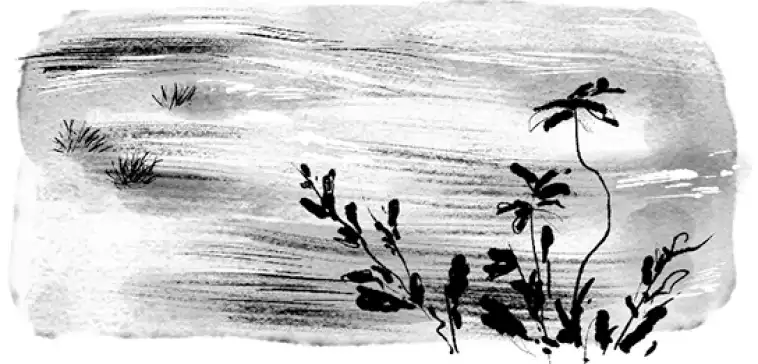
I think the core of Shamnad’s idea of diversity is that he cared for people. When he passed away, he had a will written — while half his money went to the family, half of it was divided amongst all his caregivers, such as his cook, my office boy Shiva, and others. So a lot of people got benefit out of that will he left. That’s because you deeply care. And this, I feel, was the source of Shamnad’s vision.

SHEIKH ZIARUL HAQUE
An IDIA scholar who is visually impaired
I remember the first time I met Shamnad Sir in 2017 at the birthday celebration of Arnab’s daughter. I played the violin on that occasion, and Shamnad Sir came and asked me to play another song. The way he came and talked to me was very different. It felt special. He said, “If you feel it’s possible, and if you feel it is all right for you to play another one, would you like to play another song for us?” That day I found that this person was different and unique!
We slowly became very close, and Sir asked me to call him any day whenever I had anything to share or discuss. That was one of my biggest achievements.
An important learning I got from him was if you give people fish, they will eat it and finish it there. But if you teach people how to catch fish, that will solve their problem.
Thanks to Shamnad Sir, today I have the tool of law. Being a local voice for my community, I want to use this tool to make my people understand first what injustice is, and then, we can fight for justice!
I am using this tool to do as much for society as possible. We collaborated with IJM [International Justice Mission] on the child marriage issue in the Sunderbans. We noticed that initially, the local police should have entertained local people who went with applications to stop child marriages but they did not. But when we went as a lawyer or as law students, then because of our knowledge of the law, they entertained our applications.
Thankfully, justice is now open for visually impaired people. In the future, it will be a very common thing.
We will have visually impaired judges in future.
“In the future, it will be a very common thing: we will see visually impaired judges. So I think judges, judgment and judiciary — it’s all achievable and possible for the visually impaired,” says Ziarul.
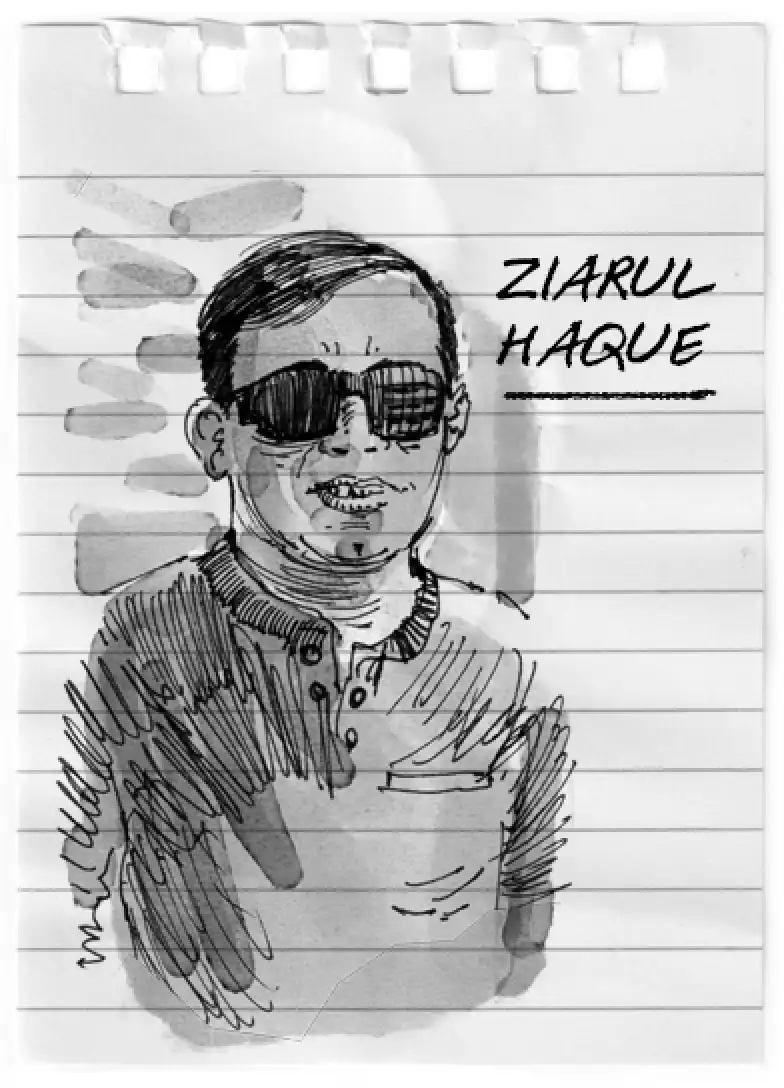
BASHEER MM
Advocate, Shamnad’s father
As far as I am concerned, he is not just my son. He’s a mentor and an advisor to me. His character was like that. Wherever he was — daily, at least one time, he used to call me.
I indeed wanted him to prepare for the civil services, but he instead sat for the law entrance examination, cleared the test and joined the law school. Likewise, many times it happened that what he said initially, I did not approve of his decisions, but later on, I realised his decision was correct and true.
When we were sorting the things in his flat after his funeral, we found that he had written a will on a piece of paper. That after my death, this has to be done. And this much amount of money has to be given to these people. Some of these included his cook, his office staff and all those people he genuinely cared for.
When I am all alone, I remember his every word. All his activities were straightforward. Even for writing his documents related to real estate, he used to go completely by the prescribed law – don’t deviate from the law and don’t get involved with corrupt practices in any way. Even his brother Nihas, who he has groomed, is like that. This contrasts with my character because I fluctuate to an extent, but Shamnad never fluctuates. In a way, I can say Shamnad influenced me more than others!
Usually, a father influences his child. In this case, he influenced me more. Not just me, but all three of us are influenced by him. When all three of them were studying, without my knowledge, Shamnad was giving them the money. He used to tell them, “Appa will give only the calculated amount.” So he used to ensure that they did not face any problems. Shamnad cared for each one of us.
You should see his IDIA — Shamnad is not there with us today, but his mission is there!
“Usually, a father influences his child. In this case, he influenced me more. Not just me, but all three of us are influenced by him,” Basheer MM, Shamnad’s father.
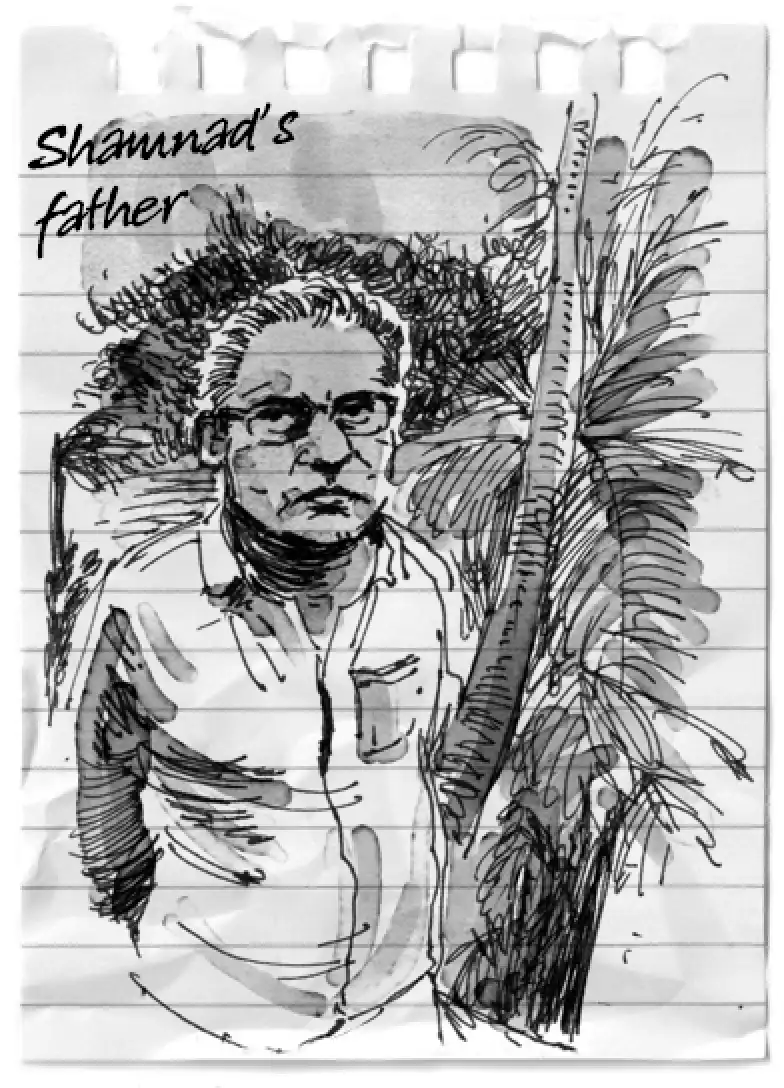
NIHAS BASHEER
Shamnad’s younger brother, Nihas currently works at a Mumbai-based law firm
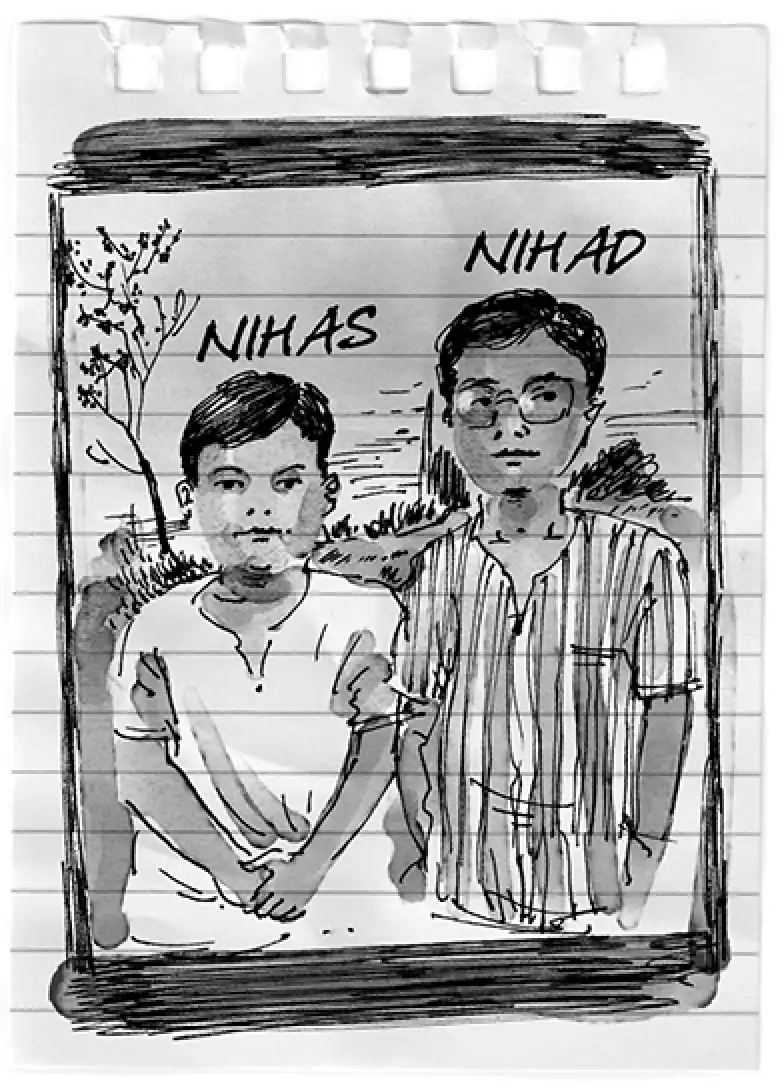
Shamnad was more of a father figure than an elder sibling to me. He was always like the adult in the room. We never got into fights with him. We never got into skirmishes with him. Anything he said was law.
So because he went to boarding school, in our growing years, he was not around — he was more like a guest and could come only during the school vacations.
Dad is a lawyer, but like many other Malayalees, he also went to the Gulf to earn his living. And initially, he struggled over there — he used to work as a stone carrier for a long time until he got a job. So there was a relative working in a company, and he knew the lawyer there. That lawyer told Dad, “whenever you have free time, sit with me; let’s discuss things on a long-term basis.” And the lawyer became impressed by him and asked Dad to join him in his work. That’s how he became legal counsel to one company where he worked for the rest of his career. Dad always pushed us towards medicine or engineering. Like every other parent around that time, he was like, ‘my kids should either become a doctor or an engineer.’
He wanted Shamnad to prepare for medical entrance exams, but Shamnad wrote an entrance test for law, cleared the exam, and then got into law school — it was not like Dad asked him to study law.
Later, when I did my schooling, I wanted to do accounting. And Dad said, “You either do law or pay for your expenses! These are your options. Your brother is a successful lawyer.”
So I think law came into our family more because of Shamnad than because of Dad. As a lawyer, Dad didn’t find success, other than the fact that he was in the Gulf. So he would not have pushed us into law. Because of Shamnad’s success, we got pushed into law!
As far as Shamnad is concerned, he always enjoyed Intellectual Property as a subject because even the professor who taught him in law school, NS Gopalakrishnan, was quite connected with the subject. So he took to it like a fish to water. And around that time — we are talking about the year 2000 — the intellectual property regime in India itself was evolving. Liberalisation had just happened, and people were getting to understand how to protect copyrights.

Even in childhood, Shamnad was different. He was one kid who never broke his toys. His toys were put up in a showcase just because it was all from those days when toys were a little fancier. And it was a house full of kids, including my other brother and me. We could hardly keep a toy alive for more than one hour naturally. But Shamnad never destroyed his toys.
You spoke to him once and fell in love with him — no second thoughts about it. He was a charmer right from the start.
And unlike many of us who read things and then do things in its influence for our growth, he always went a step ahead. Like when in college, someone put this fitness thing into his head; although he was always conscious about fitness and all, he got into judo in a big way. And then someone put this modelling thing into his head, and he went to participate in the initial rounds of Gladrags Manhunt!
He had a real connection with his Mom because Dad was an absentee parent, and it was just his mom taking care of all his needs, like figuring out what he needed in boarding school, etc. When mom died, all of that was no more. So for him, that was a kind of real loss then, and there were many unanswered questions about what happened with mom.
He was searching for answers! With time, his body started giving up on him, and the only credible answer he had for this was it was something connected to the mind. So his body was giving up because the mind was giving an instruction to shut off for whatever reason. What was causing the mind to do that? He kept searching for answers. And honestly, the only thing that came out was those unresolved issues!
He passed away at 43, but he has probably done more than many of us can do in multiple lifetimes.
To every person who has had an interaction with him, Shamnad is like a life in itself. He was so involved. As far as I am concerned, he was a parent first. He always took care of me. With Shamnad not around, the first thing that hits you is the totem pole is not there anymore. Where’s your North Star? The first thing I think is — who do I now turn to for advice? There is no one to talk to. Like there’s absolutely no one, and that continues to this day every time you think about him.
We all grew up a little detached, yet we three of us, the brothers, always felt that we were a family and everything else was an obligation. The three of us — we’ve always wanted to grow old together.
So personally, his not being around is a loss, but professionally, for a person who started so many campaigns, the world is at a bigger loss.
Shamnad did not want to be remembered. In all his organisations, whatever he built up, his objective was that it should reach a stage where they don’t need him in his lifetime. He didn’t want to become a symbol for anything. He was very clear on that.
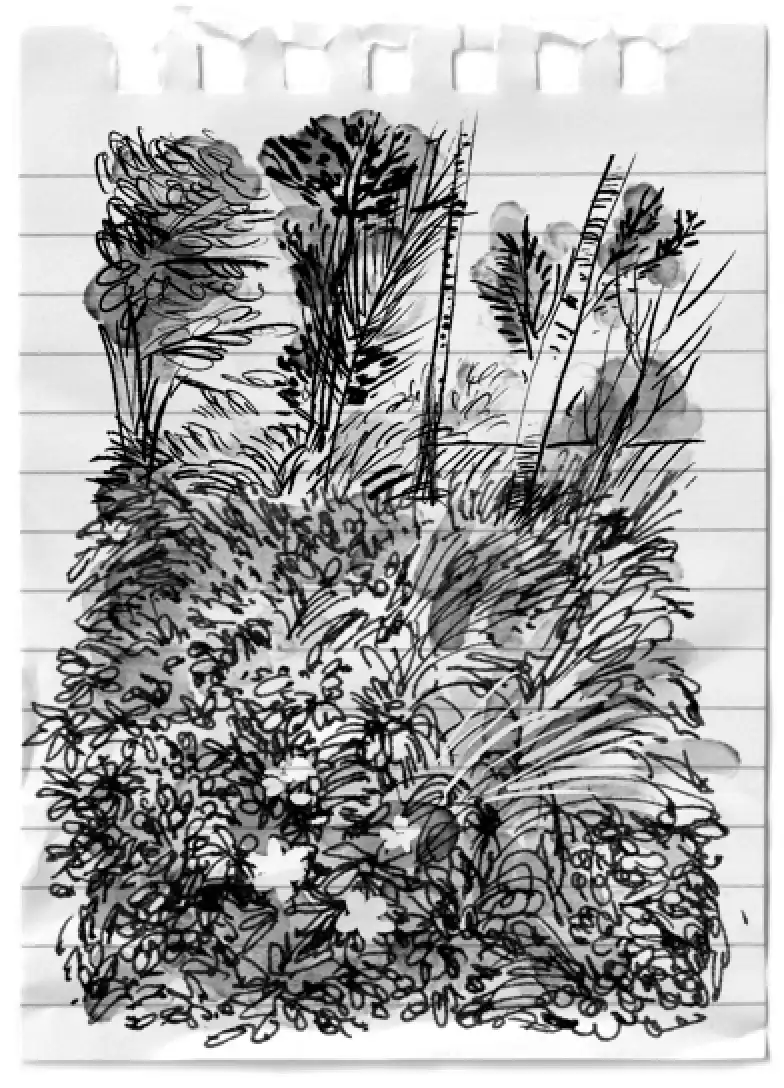
Like, I still remember people were trying in his lifetime to institute things in his name, and he was very clear: “No, it cannot be. This has to outlive me. This has to outlast me.” He had this clarity right from the beginning that the institution has to outlast the founder. And he worked towards that.
Otherwise, if we talk about his legacy, it’s the number of people’s lives he has touched. If you go on helping as many people as you can, that becomes your legacy by itself. People remember that. That has become Shamnad’s legacy. The fact that people’s lives have changed on the streets and people still speak about him — this is his legacy.
I will give you an example. In Shishira’s office, there is a person called Shiva. Shiva hadn’t spoken to my father earlier. Shiva hasn’t spoken to me for anything other than work-related stuff, but after Shamnad passed away, he now speaks to my Dad regularly to understand how he can help us out with anything!
